Deadly toll of Anti LGBTQ+ hate
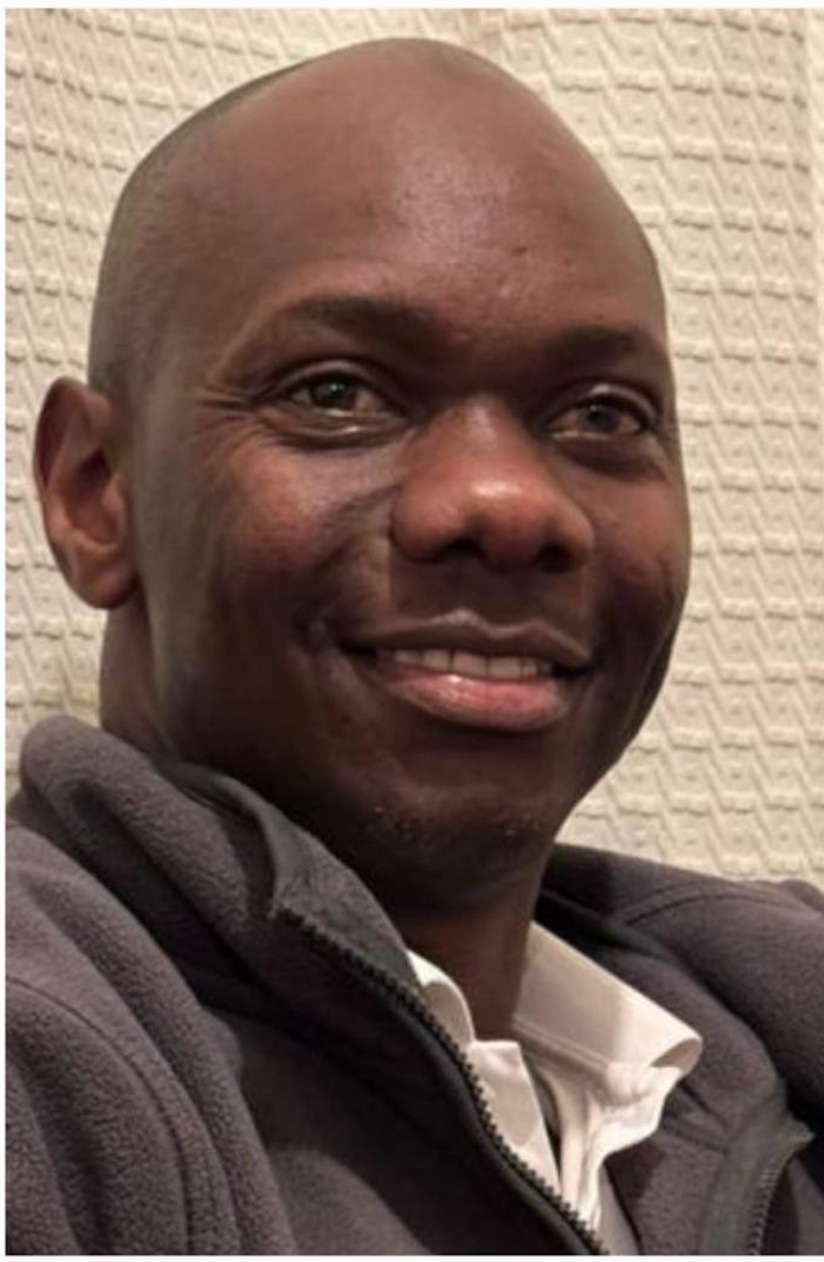
By James Kabengwa
The shocking murder of Muhsin Hendricks, recognized as the first openly gay imam globally, serves as a grim reminder of the lethal impact of homophobia and hate-driven violence.
Killed in South Africa on Saturday, Hendricks’ death has sent ripples of grief and anger across the LGBTQ+ community worldwide, prompting urgent reflections on the safety of queer individuals, especially those who challenge societal norms.
While investigators have yet to confirm the motive, the possibility that this was a hate crime is both plausible and deeply unsettling.
Hendricks’ life was a beacon of bravery and resilience. In 1996, he made history by publicly embracing his identity as a gay imam, a courageous act that positioned him at the crossroads of faith and self-expression.
Through the Al-Ghurbaah Foundation in Cape Town, he created a safe space for queer Muslims, offering support to those grappling with the intersection of their faith and sexual orientation.
Yet, his advocacy came with immense personal risk. Hendricks endured death threats and relentless opposition, as captured in the 2022 documentary “The Radical” which chronicled his efforts to establish a mosque for LGBTQ+ Muslims.
“The need to be authentic was greater than the fear to die,” he once said—a statement that now feels hauntingly prophetic.
South Africa, despite its progressive constitution that protects LGBTQ+ rights, remains a perilous environment for queer individuals.
The country’s soaring murder rates, among the highest globally, are compounded by frequent acts of violence against the LGBTQ+ community. Hendricks’ killing is not an isolated tragedy but part of a disturbing trend targeting those who defy societal expectations.
The fact that his assailants remain unidentified highlights systemic failures in addressing hate crimes and safeguarding marginalized groups.
Reactions from religious and governmental bodies have been mixed. The Muslim Judicial Council of South Africa condemned Hendricks’ murder but reiterated its position that his views on same-sex relationships were “incompatible with Islamic teachings.”
This contradictory stance—denouncing violence while upholding discriminatory beliefs—reveals the deep-seated hypocrisy that fuels anti-LGBTQ+ sentiment.
Similarly, South Africa’s Department of Justice and Constitutional Development has vowed to monitor the case, but such assurances lack weight without tangible efforts to tackle the root causes of hate-driven violence.
Hendricks’ death is a sobering reminder that the fight for equality is fraught with danger and resistance. His murder is not just a loss for the LGBTQ+ community but for humanity at large.
It underscores the pressing need for governments, religious institutions, and civil society to confront homophobia and transphobia with unwavering resolve. Education, advocacy, and legal reforms are critical to dismantling the systems that perpetuate hate and violence.
In my country Uganda there is intensified LGBTQ+ persecution with harsh anti-gay laws, that has sparked global outrage. Activists face violence, arrests, and discrimination, while international calls for human rights protections grow.
As we mourn Muhsin Hendricks, we must also honor his legacy by continuing the struggle for a world where no one is forced to choose between their faith, identity, and safety. Silence in the face of such atrocities is complicity. It is time to raise our voices, take a stand, and demand justice for Hendricks and all those whose lives have been cut short by hate.
The writer is a journalist and rights activist











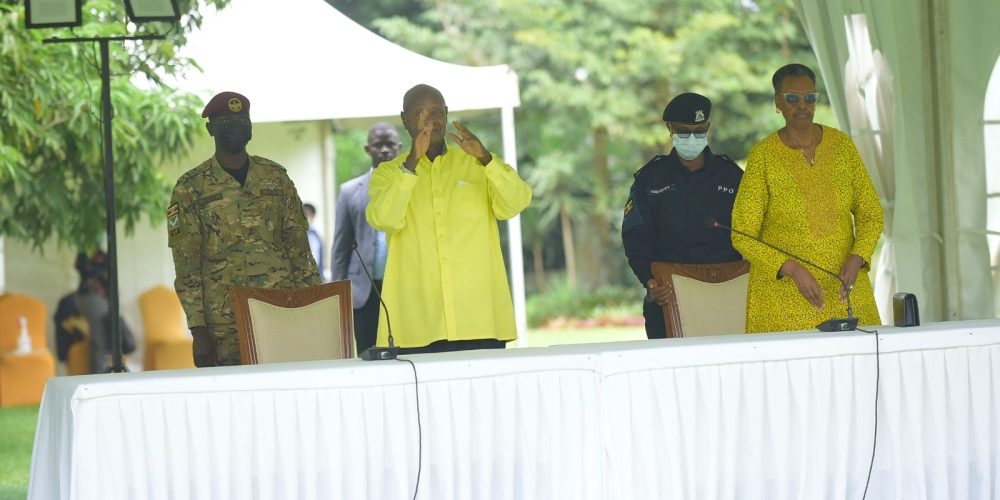
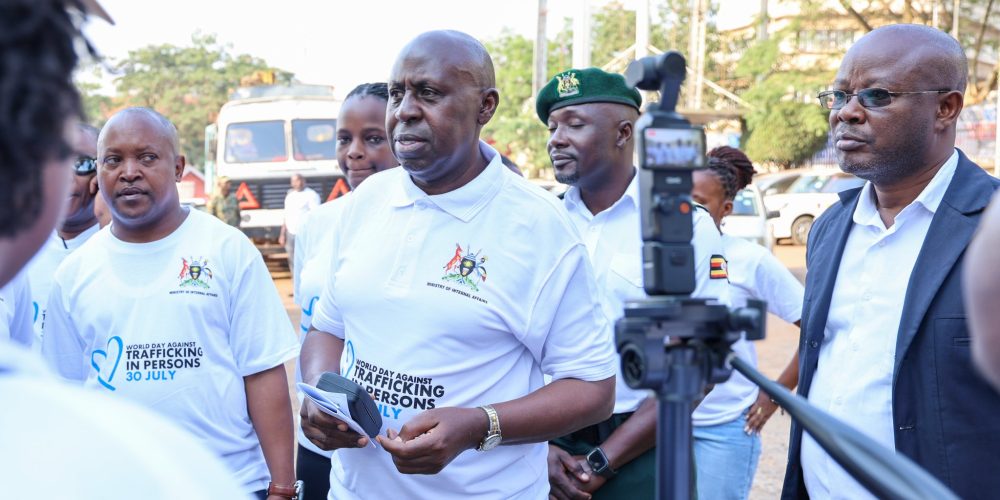
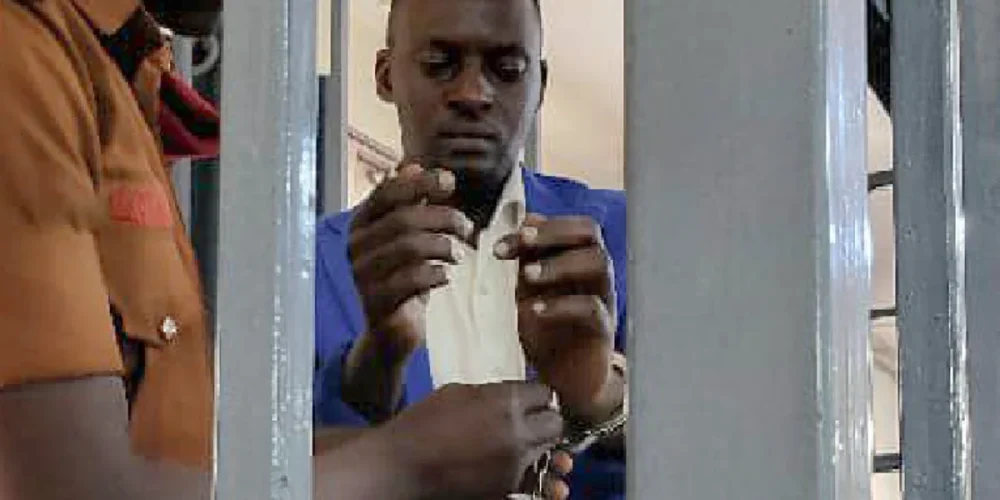
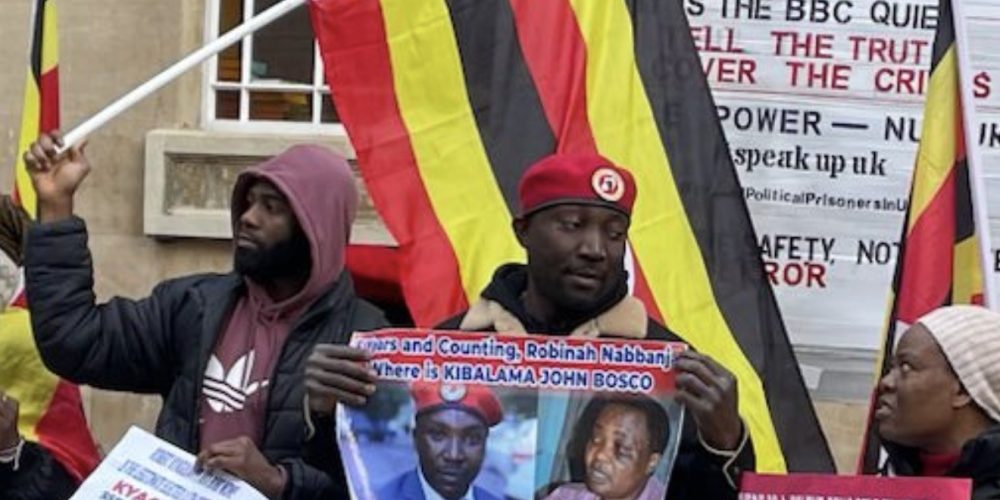
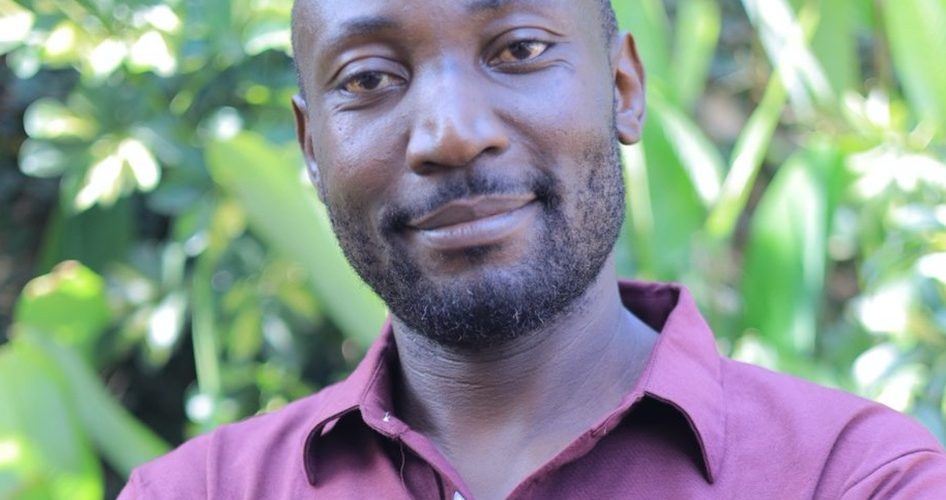
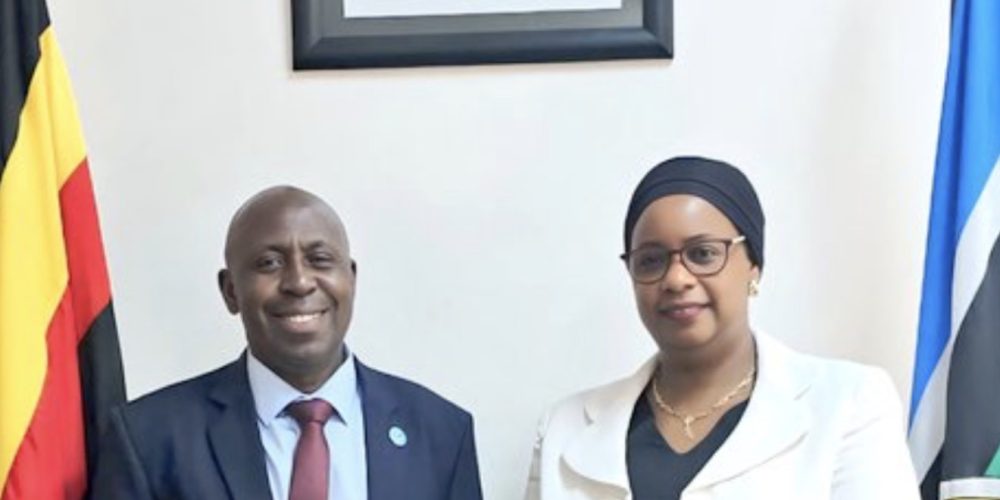
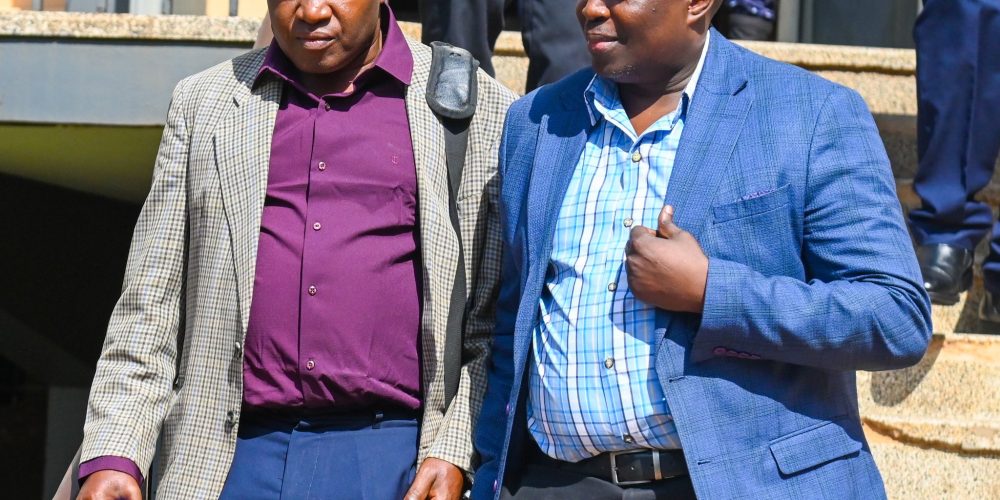
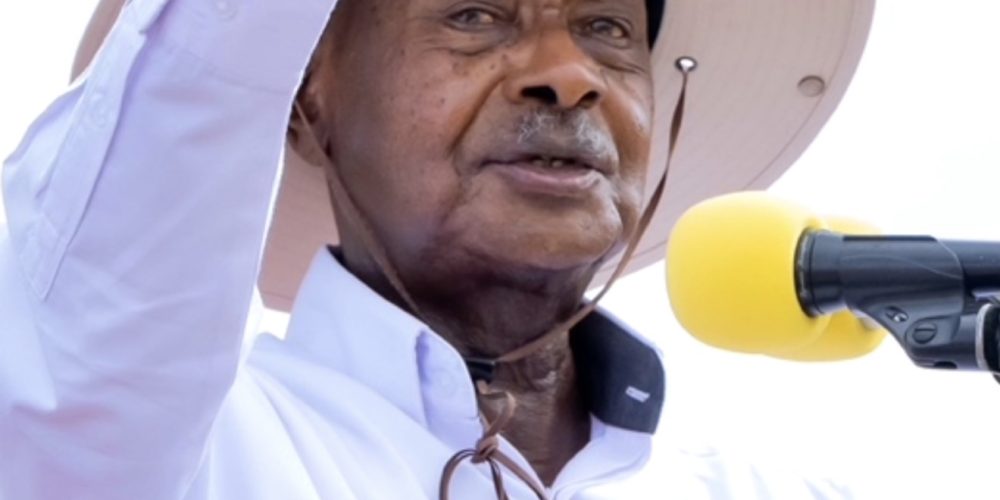
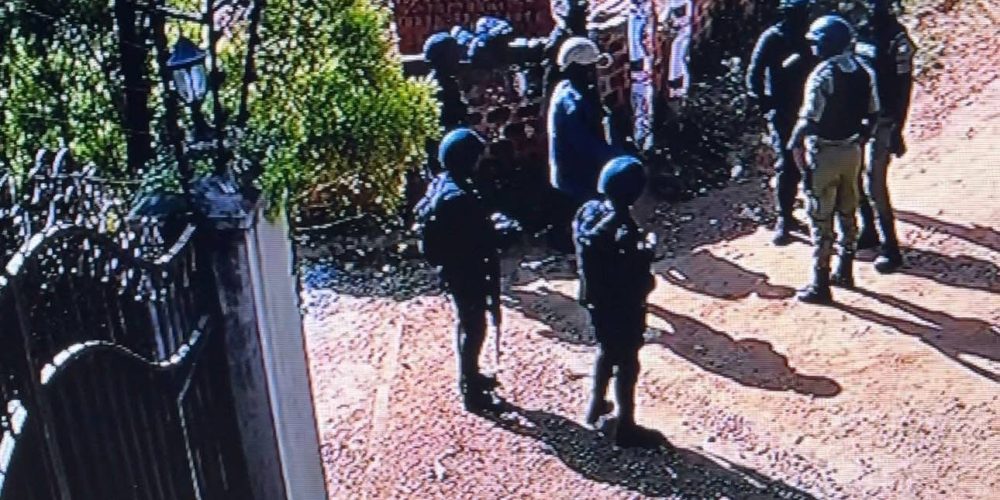
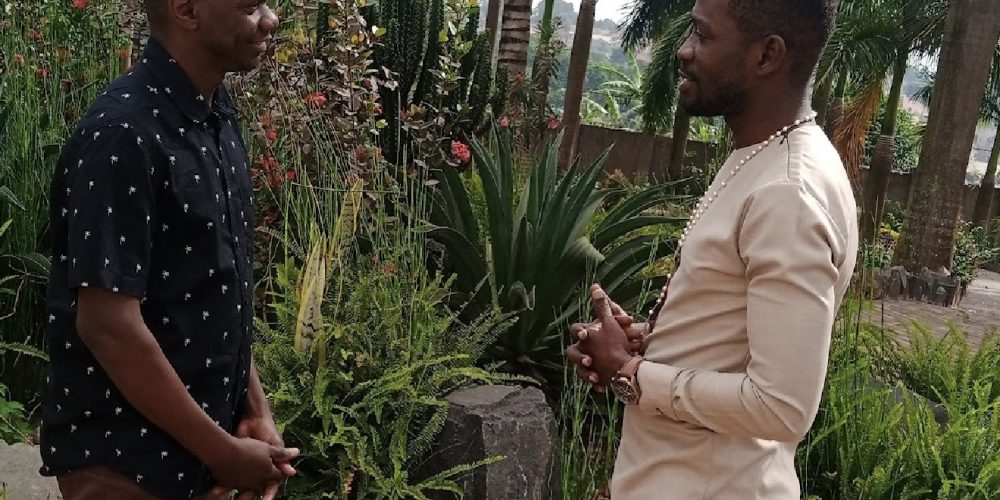
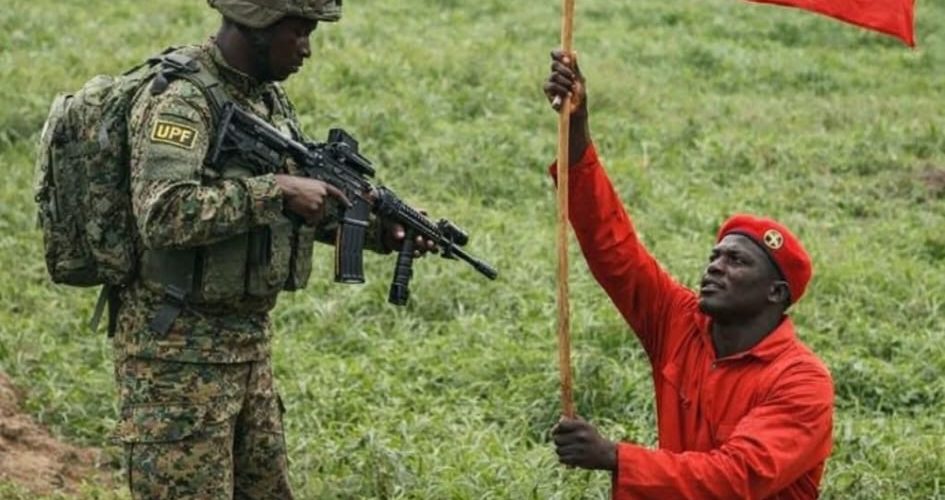
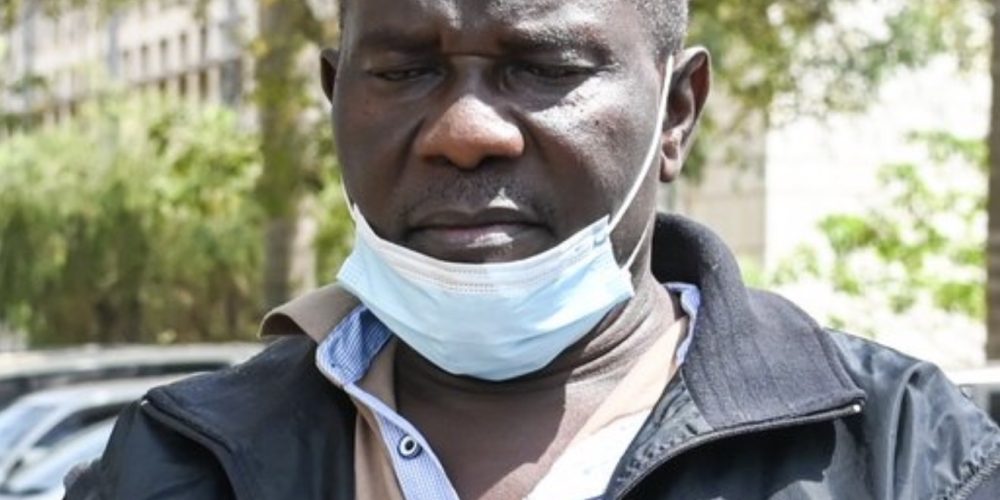

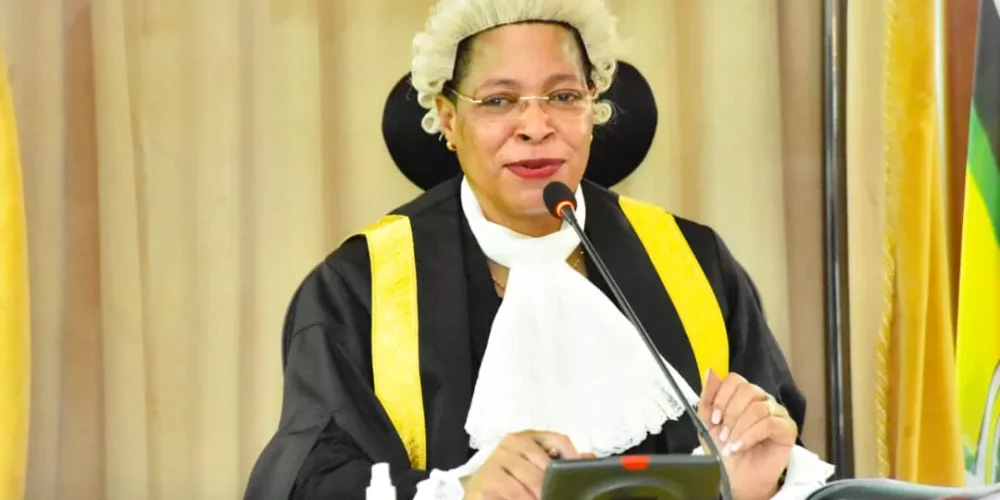

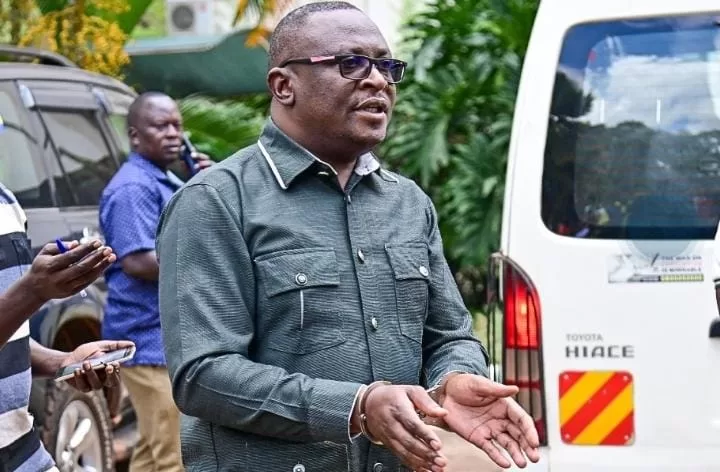

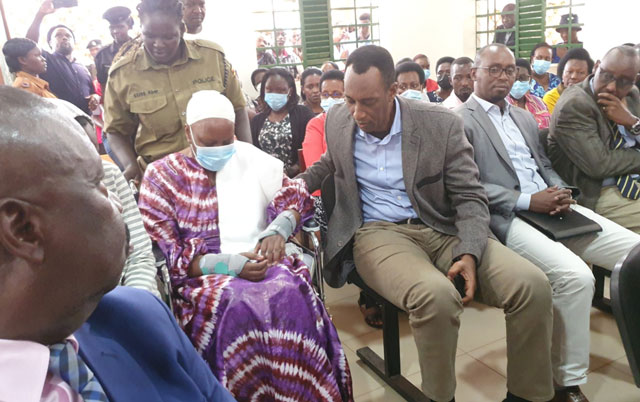
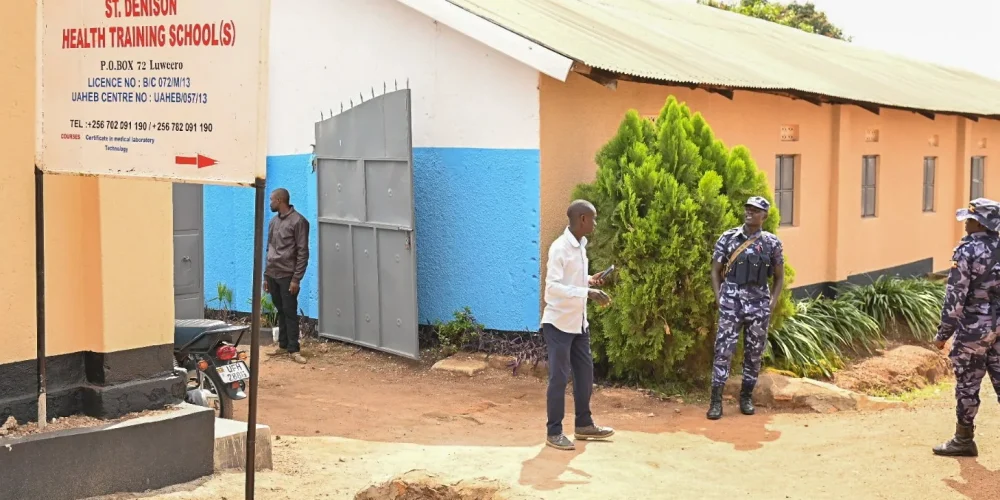




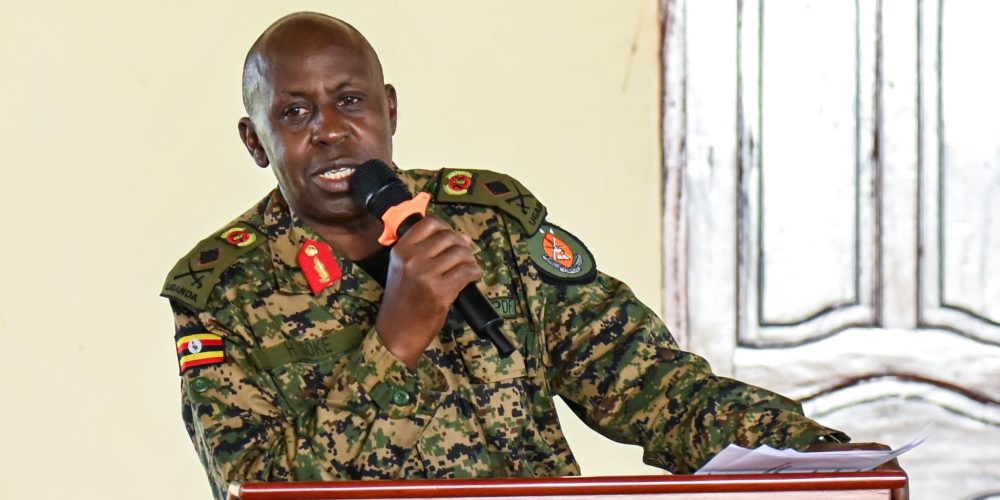
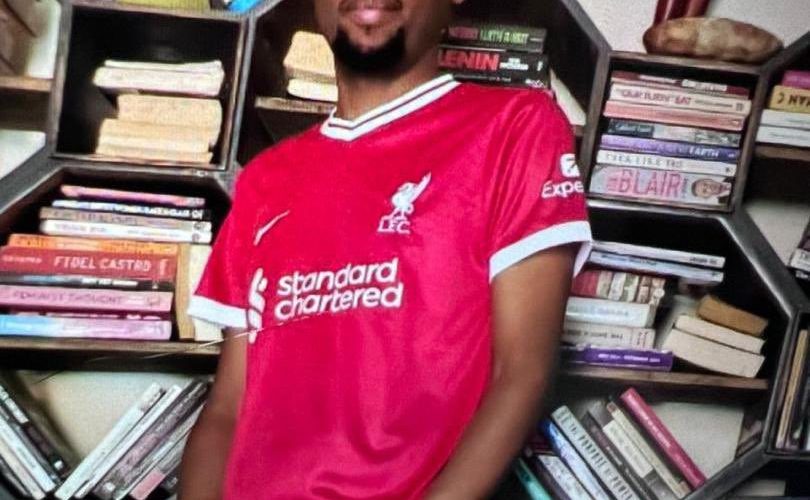
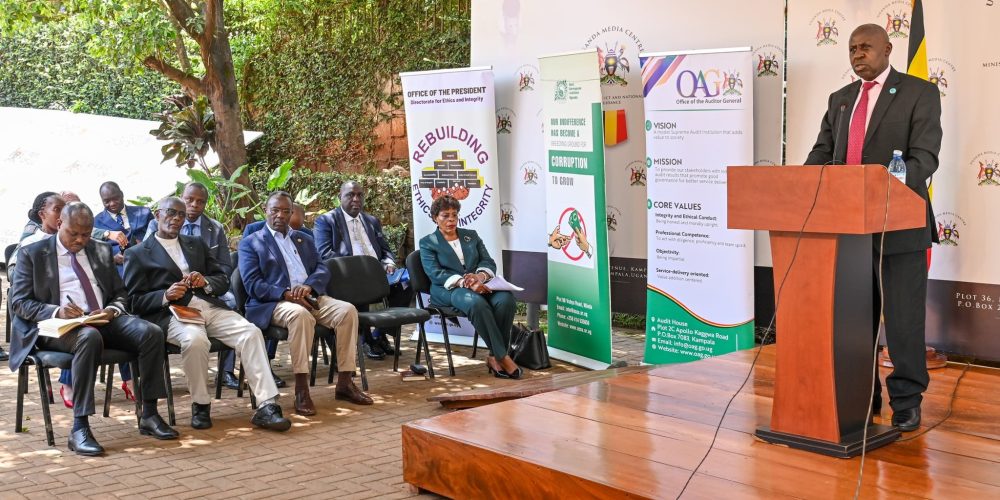
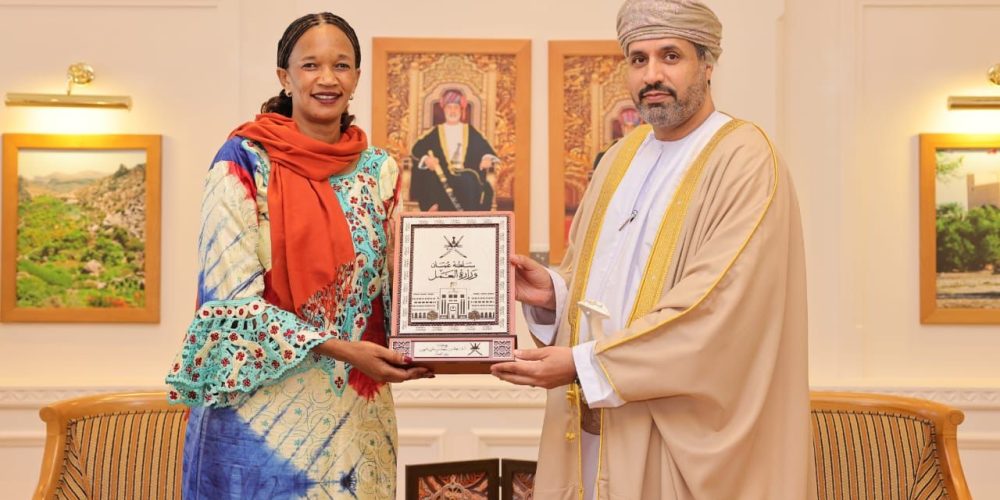
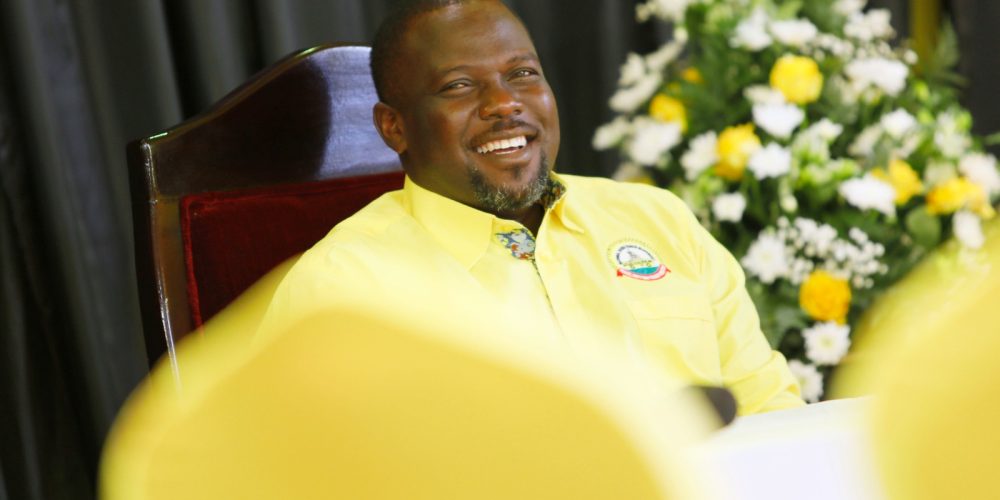

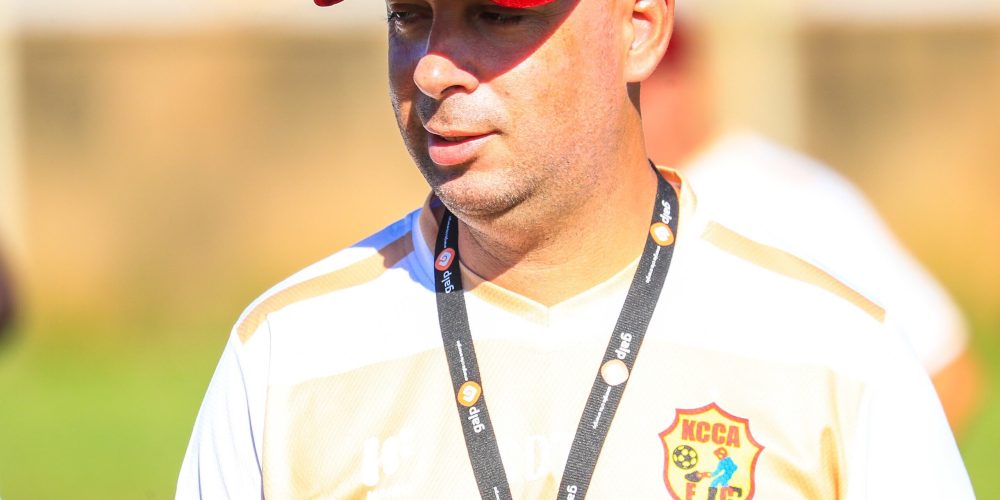

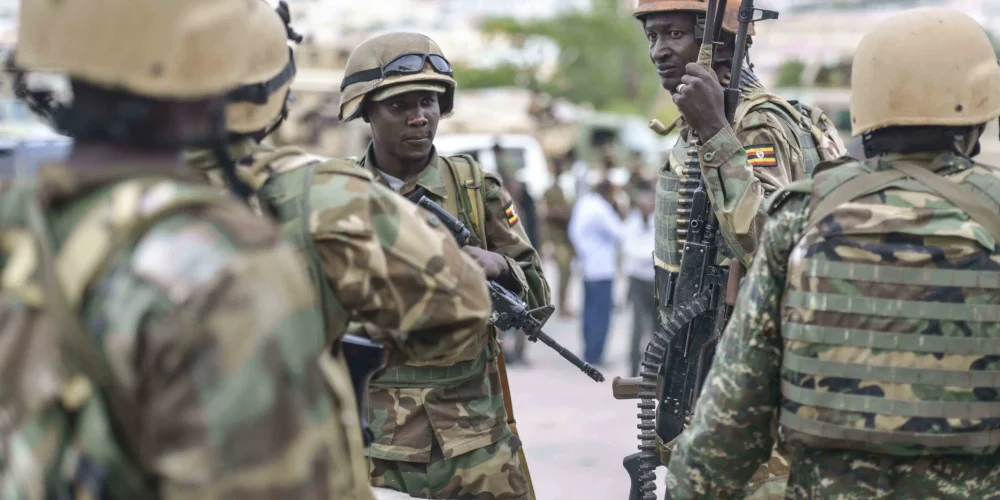
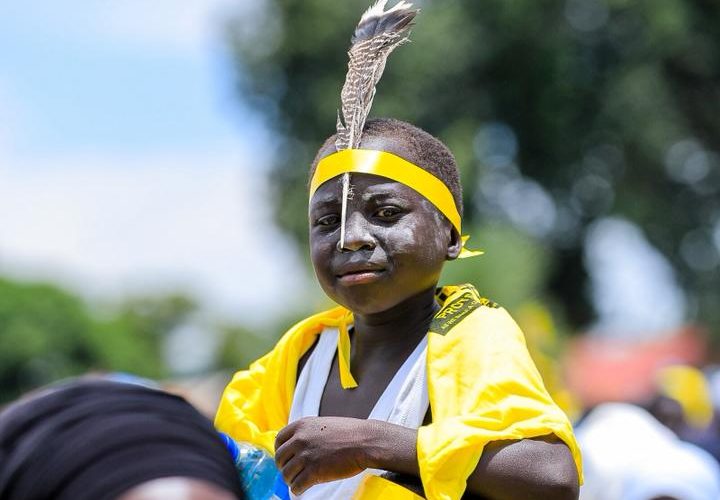




Sorumlulukla bahis yapmak, keyfinizi azaltır.
Oyun bütçenizi net tanımlamak , kontrolü tutmaya katkı sağlar .
Kendinizi yönetim araçlarını kullanmak, kontrolü sağlamınıza destek olur .
Alev Casino’da Gerçek Parayla Online Oynayın
Oyunların sorunlarının farkında olmak, uzun süreli keyif sağlar .
Zorlandığınızda danışmanlık hizmeti başvurmak, dengeyi artırmaya yardımcı olur.
Bu adımlar , sorumluluk dolu bahis süreci yaşamanızı sağlar .
¡Mis mejores deseos a todos los amantes de la emoción !
Explorando casinos online internacionales experimentas bonos de bienvenida competitivos y experiencias inmersivas en HD. casinos online extranjeros Los portales de juego aseguran promos semanales transparentes y versiones demo sin registro. Por eso destaca frente a ofertas locales limitadas.
Optando por casinos internacionales online obtienes apuestas deportivas variadas y soporte dedicado en espaГ±ol. Las webs especializadas permiten catГЎlogos con miles de tГtulos y filtros por RTP y proveedor. AsГ mantienes privacidad sin renunciar a la calidad.
Casino online internacional con soporte 24 horas – п»їhttps://casinosonlineinternacionales.guru/
¡Que disfrutes de extraordinarias giros !
I really like your blog.. very nice colors & theme. Did you make this website yourself or did you hire someone to do it for you? Plz answer back as I’m looking to create my own blog and would like to know where u got this from. kudos
https://neplox.com/
Adopter une attitude responsable représente une nécessité pour éviter les risques à long terme.
Il est conseillé de établir des plafonds précis de dépenses avant de jouer .
Surveiller les impulsions excessives contribue à garder le contrôle en temps réel.
1 win CI
Les plateformes responsables proposent des pauses obligatoires pour soutenir chaque utilisateur .
Lorsque nécessaire, sollicitez immédiatement des groupes d’entraide et bénéficiez de des conseils experts.
Garder la tête froide garantit le plaisir durable malgré défis personnels.
https://t.me/s/Official_1win_official_1win/350
I am actually delighted to glitter at this blog posts which consists of tons of worthwhile facts, thanks representing providing such data. https://lzdsxxb.com/home.php?mod=space&uid=5065823
Освоение английского с малого возраста очень полезно.
В этом возрасте мышление детей охотно принимает новые знания.
Первичное погружение с иностранной речью поддерживает речь.
Вдобавок, ребёнку намного легче воспринимать другие языки в будущем.
Навык английского предоставляет безграничные шансы в учёбе и жизни.
Таким образом, начало обучения английского становится основой будущего.
http://forum.drustvogil-galad.si/index.php/topic,229569.new.html#new
https://t.me/s/Official_1xbet_1xbet/1309
https://t.me/s/Official_1xbet_1xbet/1115
Thank you for sharing with us, I think this website truly stands out : D.
https://bentalafragrances.com
Deference to op, some wonderful entropy.
https://michelberetti.net/
Cargo delivery from China is dependable and efficient.
Our company delivers flexible solutions for enterprises of any scale.
We take care of all transportation processes to make your operations uninterrupted.
air delivery china
With direct shipments, we ensure timely dispatch of your orders.
Clients appreciate our experienced team and affordable rates.
Choosing us means assurance in every shipment.
forxiga 10 mg brand – https://janozin.com/ buy dapagliflozin 10 mg sale
Freight delivery from China is dependable and efficient.
Our company delivers custom solutions for businesses of any size.
We manage all transportation processes to make your supply chain seamless.
air freight costs from china
With regular shipments, we guarantee timely delivery of your consignments.
Clients appreciate our professional team and affordable rates.
Choosing us means confidence in every shipment.
Современные системы отслеживания рабочих смен помогают оптимизировать оперативного управления.
Удобный интерфейс устраняет неточности в отчётности .
Менеджерам легче контролировать загрузку сотрудников с детализацией.
https://slotdana.biz/tech/hr-analytics-what-metrics-do-you-need-to-track/
Работники получают прозрачный доступ к своим данным .
Переход на автоматизацию заметно оптимизирует кадровые процессы в кратчайшие сроки.
Это гарантирует доверие при распределении задач, сохраняя мотивацию команды .
Good write-up, I¦m regular visitor of one¦s blog, maintain up the nice operate, and It’s going to be a regular visitor for a long time.
https://tfmarquitectura.com/
I’m also commenting to let you know what a awesome experience my friend’s child found reading yuor web blog. She learned some pieces, most notably how it is like to possess an amazing helping nature to let a number of people with ease completely grasp a number of specialized subject matter. You really exceeded people’s expectations. Thank you for rendering such productive, safe, revealing and also unique guidance on your topic to Tanya.
https://veravoices.com/
xenical online – https://asacostat.com/ buy generic xenical online
Современные системы отслеживания рабочих смен обеспечивают повышение оперативного управления.
Удобный интерфейс сокращает ошибки в планировании графиков.
Менеджерам становится проще рабочие графики в режиме реального времени .
https://happycallgirls.com/finance/how-to-balance-between-control-and/
Работники имеют удобный учёт к своим данным .
Использование цифровых решений существенно упрощает управленческие задачи в кратчайшие сроки.
Такой подход обеспечивает прозрачность при распределении задач, укрепляя лояльность команды .
В Telegram появилась дополнительная функция — звёзды.
Они предназначены для мотивации создателей.
Любой пользователь имеет возможность передавать звёзды чатам.
телеграм старс
Звёзды переводятся в доход.
Это простой способ поблагодарить авторов.
Оцените новшество уже прямо сейчас.
Домашняя работа играют ключевую роль в обучении.
Они помогают закреплять новый материал.
Систематическая работа домашних заданий развивает дисциплину.
Задания также способствуют организации времени.
https://songpuai.go.th/forum/suggestion-box/586132-z-ni-si-li-s-i-r-b-n-u-v-vip-ln-nii-sh-linih-z-d-ni
Благодаря им ребята подготавливаются к экзаменам.
Наставники могут оценить результаты обучения.
Таким образом, учебная практика дома являются необходимыми для успеха.
Домашняя работа играют большое значение в процессе обучения.
Они помогают закреплять знания.
Регулярное выполнение домашних заданий формирует самостоятельность.
Задания также учат распределению усилий.
https://spritedatabase.net/forums/index.php?topic=53238.new#new
Благодаря им ребята подготавливаются к экзаменам.
Учителя могут видеть результаты обучения.
Таким образом, работа вне класса остаются важными для развития школьника.
В приложении Telegram появилась функция звезд.
Теперь участники могут помечать важные месседжи.
Это помогает быстро возвращаться нужную информацию.
купить звезды телкграм
Функция удобна для ежедневного общения.
С её помощью легко зафиксировать ключевые заметки.
Такой инструмент бережёт время и делает общение быстрее.
Our app allows you to change clothes on images.
It uses artificial intelligence to match outfits realistically.
You can experiment with various styles right away.
xnudes.ai|Best Clothing Changer AI Web Tool
The results look real and stylish.
It’s a handy option for fashion.
Upload your photo and pick the clothes you prefer.
Begin using it right away.
Our app allows you to swap clothes in pictures.
It uses smart technology to fit outfits naturally.
You can try multiple styles in seconds.
xnudes.ai|Best Clothing Changer Neuro Tool
The results look real and stylish.
It’s a handy option for outfit planning.
Submit your photo and choose the clothes you like.
Start trying it now.
В приложении Telegram появилась свежая функция — внутренние звёзды.
Они используются для вознаграждения каналов.
Пользователи может передавать звёзды чатам.
как купить звезды телеграм в россии
Звёзды переводятся в финансовое вознаграждение.
Это понятный способ выразить благодарность.
Попробуйте опцию уже немедленно.
Here you can explore a lot of useful information.
It is made to support you with various topics.
You will see easy-to-read explanations and real examples.
The content is frequently updated to stay relevant.
https://indianastars.us
It’s a reliable resource for research.
Every visitor can take advantage of the materials here.
Feel free to reading the site now.
This is the description of topic I enjoy reading. http://www.gtcm.info/home.php?mod=space&uid=1169424
This tool allows you to replace clothes on photos.
It uses artificial intelligence to adjust outfits realistically.
You can test multiple styles right away.
The Ultimate Clothes Changer Website
The results look convincing and modern.
It’s a useful option for shopping.
Upload your photo and choose the clothes you like.
Begin trying it now.
Our app allows you to swap clothes in pictures.
It uses smart technology to fit outfits seamlessly.
You can test multiple styles in seconds.
Best Clothing Changer Neuro Tool
The results look authentic and modern.
It’s a convenient option for shopping.
Upload your photo and pick the clothes you want.
Start using it right away.
Выбирая партнёра по недвижимости, важно обращать внимание на его надёжность.
Уважаемое агентство всегда имеет мнение покупателей, которые легко найти.
Также проверьте, есть ли разрешительные документы.
Надёжные компании сотрудничают только на основе контрактов.
Проверка недвижимости
Важно, чтобы у агентства был практика на рынке не меньше нескольких лет.
Обратите внимание, насколько открыто компания показывает нюансы сделок.
Хороший риэлтор всегда разъяснит на ваши вопросы.
Выбирая агентство, доверьтесь не только внешним обещаниям, а реальной практике.
Ища риэлторскую компанию, важно обращать внимание на его репутацию.
Проверенное агентство всегда имеет отзывы клиентов, которые легко найти.
Также оцените, наличие правовой статус.
Опытные компании работают только на основе договоров.
Дома Казани
Важно, чтобы у агентства был практика на рынке не меньше значительного периода.
Обратите внимание, насколько прозрачно компания раскрывает условия сделок.
Ответственный риэлтор всегда разъяснит на ваши вопросы.
Выбирая агентство, доверьтесь не только рекламе, а фактам работы.
Crash mechanics games are online games with a interactive experience.
They offer a rising multiplier that players can watch in real time.
The goal is to react before the counter ends.
site de crash
Such games are well-known for their simplicity and intensity.
They are often used to improve timing.
Plenty of platforms host crash games with different designs and features.
You can explore these games now for a engaging experience.
Real-time crash games are browser games with a fast experience.
They offer a growing multiplier that players can watch in real time.
The goal is to make a move before the bar crashes.
csgo betting sites crash
Such games are popular for their straightforward play and excitement.
They are often used to test decision making.
A lot of platforms showcase crash games with varied designs and features.
You can check out these games now for a interesting experience.
When participating in online gaming, it is crucial to set limits on your activity.
Responsible gaming means managing your sessions and funds.
Always make sure to play for fun rather than a source of income.
Take advantage of the responsible play features many platforms provide to help you remain balanced.
It’s recommended to pause regularly and evaluate your gaming habits.
https://www.new-style.ws/vb/showthread.php?t=3996&page=10&p=88509#post88509
Look for support or advice if you feel overwhelmed with your play.
Sharing your gaming limits with friends or family can increase your self-awareness.
By practicing responsible gaming, you benefit from i-gaming while maintaining your health.
Приобретение автозапчастей в сети остается всё более популярной среди автовладельцев.
Онлайн-платформы дают обширный каталог деталей для самых разных моделей автомобилей.
Тарифы в онлайн-магазинах часто выгоднее, чем в традиционных магазинах.
Покупатели имеют возможность анализировать предложения разных компаний без лишних затрат времени.
Запчасти для грузовиков
Кроме того, простая система доставки позволяет получить заказ без задержек.
Оценки других пользователей дают возможность выбрать подходящие автозапчасти.
Многие сервисы предоставляют гарантию на запчасти, что повышает надёжность покупателей.
Таким образом, заказ в сети автозапчастей практична и быстра.
This online resource offers a large amount of helpful materials about both men’s and women’s personal life.
Readers can discover diverse subjects that guide them improve their relationships.
Guides on the site discuss positive interaction between partners.
You will also come across advice on creating mutual understanding.
Resources here is written by experts in the field of relationships.
https://ismailaga.info
Many of the materials are clear and practical and useful for regular life.
Users can use this knowledge to improve their connections.
In short, this site offers a rich source of reliable information about private topics for both men and women.
This website offers a variety of useful materials about both men’s and women’s personal life.
Readers can discover diverse topics that help them understand their partnerships.
Articles on the site discuss healthy interaction between partners.
You will also come across advice on maintaining shared understanding.
Content here is written by professionals in the field of human connection.
https://tminews.info
Many of the guides are easy to read and helpful for everyday life.
Visitors can adapt this knowledge to improve their bonds.
In short, our platform provides a extensive library of trusted information about private topics for both men and women.
Il gioco consapevole nell’i-gaming implica fare azioni ponderate mentre ci si intrattiene alle piattaforme interattive.
Esso sostiene abitudini sani e aiuta i utenti a creare limiti chiari.
Principi del gioco responsabile includono il gestire tempo e risorse in modo ragionevole.
I utenti sono invitati a assicurare un approccio positivo e a monitorare il proprio andamento.
Materiali educativi sul gioco responsabile supportano le persone a identificare i propri schemi.
https://icosahom2020.org
Molte servizi offrono strumenti e risorse per gestione personale.
Praticare il gioco responsabile consente a tutti di apprezzare l’i-gaming in modo consapevole.
In sintesi, il gioco consapevole nell’i-gaming riguarda la autocontrollo e il fare scelte che supportano il proprio benessere.
Выбор психолога — серьёзный процесс на пути к улучшению эмоционального здоровья.
Прежде всего стоит определить свои задачи и пожелания от сотрудничества с профессионалом.
Важно ознакомиться с квалификацию и практику психолога.
Рекомендации других пациентов могут подсказать сделать выбор более обоснованным.
Также обратите внимание техники, которыми оперирует психолог.
https://kanda-guide.com/%D0%BF%D1%81%D0%B8%D1%85%D0%B8%D0%B0%D1%82%D1%80-%D0%BE%D0%BD%D0%BB%D0%B0%D0%B9%D0%BD-%D0%BF%D0%BE%D0%B4%D0%B4%D0%B5%D1%80%D0%B6%D0%BA%D0%B0-%D0%B1%D0%B5%D0%B7-%D0%BB%D0%B8%D1%88%D0%BD%D0%B8/
Начальная сессия поможет оценить, насколько подходит стиль общения.
Необходимо помнить стоимость и формат работы (например, удалённо).
Правильный выбор психолога способен сделать эффективнее личный рост.
Подбор консультанта — серьёзный процесс на пути к улучшению эмоционального здоровья.
Прежде всего стоит уточнить свои цели и ожидания от консультации с психологом.
Полезно ознакомиться с квалификацию и практику консультанта.
Рекомендации прошлых пациентов могут поспособствовать сделать выбор более осознанным.
Также следует учитывать техники, которыми пользуется консультант.
https://bowieaudio.com/%D0%BA%D0%B0%D0%BA-%D0%BF%D1%81%D0%B8%D1%85%D0%B8%D0%B0%D1%82%D1%80-%D0%BF%D0%BE%D0%BC%D0%BE%D0%B3%D0%B0%D0%B5%D1%82-%D0%BF%D1%80%D0%B8-%D0%B1%D0%B5%D1%81%D1%81%D0%BE%D0%BD%D0%BD%D0%B8%D1%86%D0%B5/
Стартовая консультация поможет почувствовать, насколько есть доверие общения.
Важно учитывать тариф и режим приёма (например, онлайн).
Взвешенный выбор профессионала способен ускорить процесс изменений.
Il gioco consapevole nell’intrattenimento digitale consiste nel fare scelte ponderate mentre ci si intrattiene alle piattaforme interattive.
Esso promuove comportamenti positivi e aiuta i utenti a impostare limiti chiari.
Regole del gioco responsabile prevedono il monitorare tempo e energie in modo sensato.
I utenti sono incoraggiati a mantenere un approccio sano e a tenere sotto controllo il proprio stile di gioco.
Risorse formative sul gioco responsabile aiutano le persone a capire i propri schemi.
https://beniciafiremuseum.org
Molte servizi mettono a disposizione strumenti e funzionalità per gestione personale.
Praticare il gioco responsabile aiuta a tutti di apprezzare l’i-gaming in modo consapevole.
In sintesi, il gioco consapevole nell’i-gaming riguarda la consapevolezza e il fare scelte che proteggono il proprio benessere.
Поиск психолога — ответственный этап на пути к поддержанию эмоционального здоровья.
Для начала стоит определить свои задачи и ожидания от сотрудничества с психологом.
Хорошо ознакомиться с подготовку и опыт психолога.
Комментарии прошлых обратившихся могут помочь сделать оценку более осознанным.
Также следует учитывать техники, которыми работает консультант.
https://chanelnavi.com/%D0%BF%D1%81%D0%B8%D1%85%D0%B8%D0%B0%D1%82%D1%80-%D0%BF%D0%BE%D0%BC%D0%BE%D1%89%D1%8C-%D0%BF%D1%80%D0%B8-%D0%B4%D0%B5%D0%BF%D1%80%D0%B5%D1%81%D1%81%D0%B8%D0%B8-%D0%B8-%D0%B0%D0%BF%D0%B0/
Стартовая консультация поможет понять, насколько вам комфортно общения.
Важно учитывать тариф и формат приёма (например, онлайн).
Осознанный выбор специалиста способен ускорить движение к целям.
Поиск специалиста — серьёзный шаг на пути к укреплению эмоционального здоровья.
Сначала стоит уточнить свои цели и пожелания от работы с профессионалом.
Полезно ознакомиться с подготовку и специализацию консультанта.
Рекомендации других обратившихся могут подсказать сделать оценку более уверенным.
Также нужно проверить подходы, которыми оперирует психолог.
https://pcctampa.com/%D0%BF%D1%81%D0%B8%D1%85%D0%B8%D0%B0%D1%82%D1%80-%D0%B2-%D1%86%D0%B5%D0%BD%D1%82%D1%80%D0%B5-%D1%8D%D0%BC%D0%BF%D0%B0%D1%82%D0%B8%D1%8F-%D0%BF%D0%BE%D0%BC%D0%BE%D1%89%D1%8C-%D0%BA%D0%BE/
Первая консультация поможет оценить, насколько подходит стиль общения.
Важно осознавать стоимость и способ приёма (например, удалённо).
Осознанный выбор специалиста позволит сделать эффективнее процесс изменений.
Un calido saludo a todos los maestros de las apuestas !
Cada vez mГЎs usuarios se registran en casinos internacionales online gracias a sus promociones constantes. El catГЎlogo de casinos internacionales online incluye tragamonedas modernas y juegos de mesa clГЎsicos. . La reputaciГіn de casinos internacionales online crece por su transparencia y su innovaciГіn en apuestas.
Los expertos recomiendan casinos online mundiales cuando se trata de apostar con seguridad y confianza. Muchos consideran a casinos online mundiales como la puerta de entrada al entretenimiento global. Si quieres jugar sin restricciones, casinos online mundiales es la mejor alternativa del mercado.
casinos internacionales online: diversiГіn y seguridad garantizada – п»їhttps://casinosinternacionalesonline.guru/#
?Que tengas la fortuna de disfrutar de increibles botes acumulados!
mejores casinos internacionales
Warm greetings to all the expert bettors !
The entertainment at kazino live never stops and keeps evolving. live casino online The kazino live brings the thrill of a real casino to your screen With kazino live, you can play roulette, blackjack, and poker in real time.
casino live offers a wide variety of live dealer games. The casino live brings the thrill of a real casino to your screen. The interaction with other players makes casino live more exciting.
live cazino Games with Real Dealers 24/7 – п»їhttps://livecasinogreece.guru/
I wish you amazing triumphs !
livecasinogreece.guru
Подбор профессиональной техники — ответственный этап в развитии красоты.
Прежде всего стоит определить задачи и услуги, которые вы планируете предоставлять.
Необходимо оценить разрешения и надёжность выбранного оборудования.
Комментарии опытных клиентов помогут сформировать обоснованный подбор.
Бьюти Инструмент
Также необходимо обратить внимание на набор функций и простоту использования.
Начальная проверка оборудования помогает понять комфорт работы.
Стоит также сравнить цены и сервисное обслуживание.
Взвешенный выбор техники позволит усилить репутацию салона.
Поиск консультанта — ответственный этап на пути к поддержанию душевного здоровья.
Прежде всего стоит определить свои задачи и пожелания от работы с профессионалом.
Хорошо проверить образование и стаж психолога.
Рекомендации прошлых обратившихся могут поспособствовать сделать выбор более обоснованным.
https://andyrzfj28630.bloggazza.com/35874772/%D0%94%D0%B5%D1%82%D1%81%D0%BA%D0%B8%D0%B9-%D0%BF%D1%81%D0%B8%D1%85%D0%BE%D1%82%D0%B5%D1%80%D0%B0%D0%BF%D0%B5%D0%B2%D1%82-%D0%B2-%D0%9C%D0%BE%D1%81%D0%BA%D0%B2%D0%B5-%D0%A6%D0%B5%D0%BD%D1%82%D1%80-%D0%BF%D1%81%D0%B8%D1%85%D0%B8%D1%87%D0%B5%D1%81%D0%BA%D0%BE%D0%B3%D0%BE-%D0%B7%D0%B4%D0%BE%D1%80%D0%BE%D0%B2%D1%8C%D1%8F
Также обратите внимание подходы, которыми работает консультант.
Первая консультация помогает понять, насколько есть доверие общения.
Необходимо осознавать цену и способ приёма (например, онлайн).
Взвешенный выбор специалиста позволит улучшить процесс изменений.
На данном ресурсе собрана актуальная и полезная информация по разным вопросам.
Читатели могут обнаружить подсказки на актуальные проблемы.
Материалы размещаются постоянно, чтобы вы каждый могли получать свежую аналитику.
Удобная навигация сайта помогает быстро отыскать нужные страницы.
https://nxmed.ru/onlajn-razvlecheniya/luchshe-smotret-porno-na-sajte/
Большое количество категорий делает ресурс интересным для многих посетителей.
Любой сможет выбрать советы, которые подходят именно ему.
Существование понятных рекомендаций делает сайт ещё более значимым.
Таким образом, площадка — это удобный источник важной информации для широкого круга пользователей.
Российская мода характеризуется уникальностью и богатой традицией.
Современные дизайнеры черпают идеи в этнических мотивах, создавая яркие модели.
В коллекциях всё чаще появляются смелые решения цветов.
Российская мода развивают ответственный подход к разработке одежды.
tatyana kochnova
Публика всё больше следит за самобытные тенденции из России.
Платформы о моде освещают о актуальных показах и дизайнерах.
Молодые таланты завоёвывают известность как в стране, так и за границей.
В итоге модная сцена активно расти, объединяя традиции и современность.
Отечественная мода выделяется уникальностью и разнообразной культурой.
Сегодняшние дизайнеры опираются в традиционных образах, создавая яркие коллекции.
В показах всё чаще представлены необычные сочетания фактур.
Местные бренды развивают устойчивый подход к производству одежды.
tatyana kochnova bridal
Публика всё больше интересуется оригинальные бренды из России.
Журналы о моде освещают о свежих тенденциях и дизайнерах.
Перспективные бренды обретают известность как в отечестве, так и за пределами страны.
В итоге отечественная индустрия активно развиваться, объединяя традиции и современность.
While participating in internet gaming, it is important to define boundaries on your activity.
Responsible gaming means keeping track of your hours and budget.
Always be aware to play for fun rather than a way to earn money.
Apply the responsible play features many platforms offer to help you maintain control.
It’s helpful to take breaks regularly and evaluate your gaming habits.
http://nenadmihajlovic.net/forum/index.php?topic=1008421.new#new
Look for support or advice if you feel overwhelmed with your play.
Talking about your gaming limits with friends or family can increase your self-awareness.
By practicing balanced gaming, you benefit from i-gaming while preserving your balance.
Un calido saludo a todos los aventureros de la suerte !
Gracias a casino por fuera los jugadores pueden acceder a promociones especiales y giros gratis. La opciГіn de jugar en casino por fuera resulta atractiva para quienes valoran la privacidad. п»їcasino fuera de espaГ±a. La experiencia en casino por fuera se caracteriza por retiros sin comisiones y depГіsitos flexibles.
Con casino online fuera de espaГ±a puedes jugar en tragaperras exclusivas con RTP mГЎs alto. Las personas prefieren casinos online fuera de espaГ±a porque ofrece soporte en espaГ±ol las 24 horas. Los usuarios destacan que casino por fuera permite apuestas en vivo con menor latencia.
casino por fuera con jackpots millonarios – п»їhttps://casinosfueradeespana.blogspot.com/
?Que tengas la fortuna de disfrutar de increibles beneficios !
casinosfueradeespana
Самостоятельные девушки — это неповторимые личности, которые берегут свою свободу.
Они предпочитают к продуманному подходу в отношениях.
Такие девушки обычно обладают сильным характером и четкими жизненными ценностями.
Они открыто демонстрировать свои взгляды.
https://rostov.spaxam.net/
Контакт с ними всегда получается насыщенным.
Они любят воспринимать собеседника и выстраивать настоящие отношения.
Такие девушки мотивируют окружающих своей подлинностью.
Они стремятся своим путем, не подстраиваясь под сторонние ожидания.
Девушки-индивидуалки — это выразительные личности, которые берегут свою индивидуальность.
Они выбирают к продуманному подходу в общении.
Такие девушки повсеместно обладают независимым характером и сформированными жизненными приоритетами.
Они смело артикулировать свои позиции.
https://lugansk.spaxam.net/
Взаимодействие с ними часто получается глубоким.
Они любят слышать собеседника и создавать честные отношения.
Такие девушки вдохновляют окружающих своей подлинностью.
Они движутся своим путем, не подстраиваясь под внешние ожидания.
Подбор доктора-остеопата — серьёзный шаг на пути к улучшению самочувствия.
Прежде всего стоит уточнить свои задачи и пожелания от консультации у специалиста.
Полезно изучить подготовку и стаж выбранного остеопата.
Комментарии клиентов помогут принять осознанный решение.
https://mestas.ru/mesto/osteodok/29252222
Также необходимо обратить внимание подходы, которыми работает специалист.
Начальная консультация помогает почувствовать, насколько комфортно вам общение и подход врача.
Не забудьте сравнить стоимость и режим приёма (например, удалённо).
Взвешенный выбор врача поможет сделать эффективнее процесс восстановления.
На этом сайте размещена интересная и полезная данные по разнообразным темам.
Гости могут найти ответы на важные темы.
Контент размещаются постоянно, чтобы каждый посетитель могли получать новую аналитику.
Интуитивная организация сайта помогает быстро найти нужные страницы.
порно
Широкий спектр тем делает ресурс интересным для разных читателей.
Каждый посетитель сможет выбрать материалы, которые подходят именно ему.
Существование понятных советов делает сайт особенно значимым.
Таким образом, данный сайт — это удобный источник полезной информации для широкого круга пользователей.
Новейшее медоборудование играет ключевую роль в обследовании и помощи пациентов.
Медицинские центры всё чаще используют высокотехнологичную аппаратуру.
Это позволяет докторам делать правильные диагнозы.
Современные приборы создают безопасность и для людей, и для врачей.
https://forum.motoshkola.od.ua/threads/kakie-chastnye-kliniki-forumchane-predpochitaete-v-nashem-gorode.65344/
Внедрение высоких технологий ускоряет эффективное лечение.
Многие устройства имеют функции для глубокого контроля состояния здоровья.
Доктора могут оперативно действовать, основываясь на данных аппаратуры.
Таким образом, новейшее медицинское оборудование усиливает качество лечебного процесса.
The platform offers plenty of captivating and useful materials.
On this platform, you can discover a wide range of sections that cover many important fields.
All materials is created with care to accuracy.
The content is constantly refreshed to keep it current.
Visitors can gain fresh knowledge every time they browse.
It’s an excellent source for those who enjoy educational reading.
Many people find this website to be well-organized.
If you’re looking for relevant articles, you’ll definitely discover it here.
https://clictopics.com
Современное медоборудование играет важную часть в диагностике и помощи пациентов.
Клиники всё чаще используют инновационную системы.
Это обеспечивает врачам проводить правильные диагнозы.
Актуальные приборы создают надёжность и для людей, и для персонала.
https://rsute.ru/1119162-novaya-era-fizioterapii-kak-rabotaet-lazer-hilt-i-komu-on-podhodit.html
Развитие высоких технологий ускоряет эффективное восстановление.
Большинство устройства имеют опции для детального наблюдения состояния здоровья.
Специалисты могут своевременно действовать, основываясь на данных аппаратуры.
Таким образом, инновационное медоборудование усиливает уровень лечебного процесса.
A warm greeting to all the treasure seekers !
Sites that feature nodepositbonusgreece.xyz usually combine security, variety, and instant accessibility for users. . Experts agree that nodepositbonusgreece.xyz attracts both beginners and experienced gamblers seeking extra value. One of the biggest advantages of choosing nodepositbonusgreece.xyz is that it allows players to test games without initial investment.
Players looking for no deposit casino can find exciting opportunities on various platforms that cater to Greek audiences. Experts agree that no deposit casino attracts both beginners and experienced gamblers seeking extra value. For anyone who wants to maximize rewards, no deposit casino can be the perfect starting point in online gambling.
Step by Step Guide to Unlock nodepositbonusgreecefree – п»їhttps://nodepositbonusgreece.xyz/#
May you have the fortune to enjoy incredible jackpots!
online casino no deposit bonus
I truly appreciate this post. I have been looking everywhere for this! Thank goodness I found it on Bing. You’ve made my day! Thank you again!
http://www.tlovertonet.com/
Fine-art photography often focuses on expressing the aesthetics of the natural shape.
It is about light rather than surface.
Professional photographers use natural tones to reflect atmosphere.
Such images celebrate artistry and personality.
https://xnudes.ai/
Each photo aims to evoke feelings through movement.
The goal is to present human beauty in an respectful way.
Audiences often value such work for its depth.
This style of photography unites emotion and sensitivity into something truly timeless.
Fine-art photography often focuses on expressing the beauty of the natural shape.
It is about expression rather than exposure.
Experienced photographers use subtle contrasts to reflect mood.
Such images celebrate delicacy and individuality.
https://xnudes.ai/
Each photo aims to tell a story through pose.
The purpose is to present human beauty in an artful way.
Audiences often appreciate such work for its creativity.
This style of photography unites technique and vision into something truly expressive.
You can conserve yourself and your stock nearby being cautious when buying medicine online. Some pharmaceutics websites manipulate legally and offer convenience, solitariness, bring in savings and safeguards over the extent of purchasing medicines. buy in TerbinaPharmacy https://terbinafines.com/product/elavil.html elavil
Creative photography often focuses on expressing the harmony of the natural shape.
It is about composition rather than appearance.
Skilled photographers use subtle contrasts to convey mood.
Such images capture artistry and personality.
https://xnudes.ai/
Every frame aims to tell a story through form.
The purpose is to portray human beauty in an artful way.
Audiences often value such work for its depth.
This style of photography unites emotion and vision into something truly timeless.
I’ll certainly bring to read more. acheter propecia en ligne
Modern websites for grown users provide a range of engaging content.
These sites are designed for social interaction and discovering personal interests.
Participants can connect with others who have similar values.
A lot of of these services encourage comfortable interaction and welcoming communication.
https://uc-history.us/lifestyle/fisting-porn-exploring-a-unique-fetish-in-adult-entertainment/
The design is usually user-friendly, making it easy to use.
Such platforms enable people to express themselves in a relaxed online environment.
Privacy remains an essential part of the user experience, with many sites providing control tools.
Overall, these platforms are created to support adult communication in a responsible digital space.
Modern online platforms for adult audiences provide a selection of interesting content.
These sites are designed for communication and discovering lifestyles.
Members can find others who enjoy the same values.
A lot of of these sites encourage comfortable interaction and friendly communication.
https://alongwalker.info/2025/10/07/home-sex-tape-exploring-authenticity-in-adult-entertainment/
The interface is usually simple, making it easy to use.
Such platforms enable people to build connections in a open online environment.
Privacy remains an important part of the user experience, with many sites offering control tools.
Overall, these platforms are designed to support open discussion in a respectful digital space.
I couldn’t resist commenting. Well written!
Онлайн сервисы для общения помогают пользователям знакомиться в удобном формате.
Такое общение расширяет кругозор.
Множество людей отмечают, что такие сервисы дают шанс расслабиться после работы.
Это простой способ для новых контактов.
https://admvzvad.ru/onlajn-razvlecheniya/pravda-o-domashnee-porno-mify-i-realnost/
Самое важное — сохранять вежливость и интерес в переписке.
Позитивное общение помогает настроение.
Такие платформы созданы для тех, кто ценит новых людей.
Современные сервисы становятся способом провести время с пользой.
Современные приложения для редактирования фото становятся всё более удобными.
Они применяют искусственный интеллект для улучшения качества изображений.
С помощью таких инструментов можно удалить фон на фото без опыта.
Это делает работу быстрее и предлагает отличный результат.
просвет под одежду бесплатно раздевание девушек раздеватлр бот бесплатно 3 обработки
Многие пользователи применяют такие боты для контента.
Они дают возможность создавать привлекательные фотографии даже в домашних условиях.
Управление таких систем удобное, поэтому с ними просто начать работать.
Совершенствование нейросетей позволяет сделать фотообработку доступной для широкой аудитории.
Современные сервисы для общения позволяют взрослым людям общаться в удобном формате.
Такое общение расширяет кругозор.
Большинство людей отмечают, что такие сервисы способствуют расслабиться после ежедневных дел.
Это понятный вариант для приятных знакомств.
https://ksadm.ru/muzhchina-i-zhenshhina/inczest-porno-mify-interes-i-kulturnyj-kontekst/
Главное — сохранять вежливость и интерес в диалоге.
Доброе общение улучшает восприятие жизни.
Такие платформы подходят для тех, кто ищет друзей по духу.
Современные сервисы становятся формой досуга с позитивом.
Инновационные онлайн-сервисы для редактирования фото являются всё более популярными.
Они используют AI-технологии для улучшения качества изображений.
С помощью таких инструментов можно заменить одежду на фото без дополнительных программ.
Это упрощает процесс и обеспечивает высокое качество.
как раздеть девушку бесплатно
Многие пользователи выбирают такие боты для портфолио.
Они дают возможность создавать эстетичные фотографии даже в домашних условиях.
Управление таких систем интуитивное, поэтому с ними просто редактировать.
Эволюция нейросетей делает фотообработку эффективной для каждого.
Интеллектуальные онлайн-сервисы для поиска информации становятся всё более удобными.
Они позволяют изучать публичные данные из разных источников.
Такие решения подходят для исследований.
Они умеют точно обрабатывать большие объёмы контента.
глаза бога телеграмм что это
Это способствует сформировать более полную картину событий.
Некоторые системы также включают инструменты фильтрации.
Такие боты активно применяются среди аналитиков.
Развитие технологий делает поиск информации эффективным и быстрым.
Подбор подрядчика — важный шаг при реализации ремонта.
До того как начать сотрудничество, стоит изучить отзывы компании.
Проверенная организация всегда обеспечивает реальные сроки.
Важно проверить, какие технологии применяются при строительстве.
https://www.niftygateway.com/@nickstroika/
Influencer marketing has become one of the most popular approaches in online promotion.
It enables brands to build relationships with their customers through the recommendations of influential people.
Bloggers share stories that boost engagement in a product.
The main advantage of this approach is its authenticity.
https://messiahohzp49405.rimmablog.com/32706151/how-influencers-are-revolutionizing-marketing-campaigns-through-relatable-posts
Users tend to engage more actively to real stories than to classic advertising.
Brands can strategically identify partners to target the right audience.
A strategic influencer marketing campaign strengthens reputation.
As a result, this method of promotion has become an integral part of brand strategy.
????????? ??????????? ??????? ???????? ?? ???????? ?????????.
?????? ?????, ?? ????????? ?? ???????? ?????, ??? ?????.
??????????? ?????? ??????? ???????????????? ? ????????????.
???????????? ??????? ?? ????????? ???????????, ???? ??? ?????????? ????????????.
fortuna-distillery
???? ?????? ??????????, ? ????????????? ???????????.
?? ??? ??????? ?????, ?????? ? ???? ????????.
??????????? ???????? ?????? ??????? ???????? ?????.
?????????? ???????????? ???????, ?? ???????????? ???? ????????? ????????????.
?Brindemos por cada conquistador del premio mayor !
Los casinos sin registro ofrecen acceso inmediato, algo que puede ser atractivo para quienes buscan rapidez. No obstante, esa facilidad conlleva riesgos asociados a la falta de verificaciГіn de edad o identidad. Es esencial recordar que la seguridad debe estar por encima de la comodidad.
Un casino online sin registro permite jugar con un clic, pero sin seguridad total. Las transacciones no verificadas pueden ser vulnerables a fraudes. Utilizar mГ©todos de pago seguros es esencial en cualquier sitio de apuestas.
Casinos sin licencia en EspaГ±ola con soporte mГіvil – п»їhttps://casinossinlicenciaespanola.net/
?Que la fortuna te sonria con deseandote espectaculares jackpots impresionantes !
Услуги по аренде техники сегодня считается выгодным способом для строительных компаний.
Она позволяет решать задачи без необходимости приобретения машин.
Организации, предлагающие такую услугу, обеспечивают широкий выбор техники для различных сфер.
В парке можно найти автокраны, катки и другое оборудование.
https://banki.saratova.ru/articles/2025/07/preimushestva-arendy-mini-pogruzchikom-v-stroitelstve.html
Ключевое преимущество аренды — это отсутствие затрат на обслуживание.
Также, арендатор имеет доступ к современную технику, поддерживаемую в порядке.
Опытные компании предлагают удобные договоры аренды.
Таким образом, аренда спецтехники — это разумный выбор для тех, кто ищет экономию в работе.
Поиск digital-агентства — ответственный момент в росте бренда.
Перед тем как начать работу, стоит изучить репутацию выбранного партнёра.
Профессиональная команда всегда действует на основе исследований и учитывает потребности заказчика.
Стоит убедиться, какие инструменты применяет агентство: контекстная реклама, email-маркетинг и другие направления.
https://vzlet.media/poiskovoe-prodvizhenie-optimizaciya/seovladivostok/
Плюсом является понятная отчётность и реальные результаты.
Отзывы клиентов помогут понять, насколько качественно агентство ведёт кампании.
Не стоит ориентироваться только на низкой цене, ведь результат стратегии зависит от подхода специалистов.
Взвешенный выбор партнёра по маркетингу обеспечит развить бизнес и улучшить видимость бренда.
Настоящий алкоголь характеризуется чистым вкусом и сбалансированным букетом.
Основным показателем качества считается чистота жидкости.
Добротные бренды контролируют технологии производства.
Тара также может многое рассказать о уровне продукта.
fortuna
Законная маркировка — ещё один сигнал качества.
Настоящий алкоголь не должен вызывать жжения в горле.
Важно выбирать продукцию у официальных продавцов.
Осознанный подход к выбору продукции поможет избежать разочарований.
?Un calido saludo para todos los aventureros del casino !
Un casino sin licencia en EspaГ±a puede tener servidores ubicados en otros paГses con normativas mГЎs laxas. Este modelo internacional dificulta la supervisiГіn y el control de actividades sospechosas. casinos sin licencia EspaГ±ola Por eso, se recomienda jugar solo en sitios con licencias verificables.
Los casinos sin registro ofrecen acceso inmediato, algo que puede ser atractivo para quienes buscan rapidez. No obstante, esa facilidad conlleva riesgos asociados a la falta de verificaciГіn de edad o identidad. Es esencial recordar que la seguridad debe estar por encima de la comodidad.
Casino sin licencia en EspaГ±a con juegos en vivo online – п»їhttps://casinossinlicenciaenespana.net/
?Les deseo extraordinarios recompensas brillantes !
casino sin licencia espaГ±a
Современные боты для мониторинга источников становятся всё более востребованными.
Они позволяют находить открытые данные из разных источников.
Такие инструменты подходят для аналитики.
Они могут оперативно анализировать большие объёмы контента.
глазьога
Это позволяет получить более полную картину событий.
Некоторые системы также включают функции визуализации.
Такие платформы активно применяются среди специалистов.
Совершенствование технологий позволяет сделать поиск информации более точным и наглядным.
Интеллектуальные поисковые системы для анализа данных становятся всё более удобными.
Они позволяют собирать открытые данные из разных источников.
Такие боты используются для аналитики.
Они умеют оперативно анализировать большие объёмы информации.
glass boaga
Это способствует создать более точную картину событий.
Некоторые системы также включают инструменты фильтрации.
Такие боты популярны среди специалистов.
Развитие технологий превращает поиск информации доступным и удобным.
Интеллектуальные онлайн-сервисы для мониторинга источников становятся всё более удобными.
Они дают возможность находить публичные данные из социальных сетей.
Такие боты подходят для аналитики.
Они способны быстро анализировать большие объёмы контента.
глаз богат
Это позволяет сформировать более объективную картину событий.
Отдельные системы также включают инструменты фильтрации.
Такие платформы широко используются среди аналитиков.
Эволюция технологий превращает поиск информации эффективным и наглядным.
Maintaining control while gaming is essential for ensuring a positive gaming experience.
It helps users appreciate the activity without harmful effects.
Understanding your boundaries is a core aspect of responsible behavior.
Players should set reasonable time limits before they start playing.
Popular Slots AU
Short pauses can help keep control and prevent fatigue.
Honesty about one’s habits is vital for keeping gaming a fun activity.
Many services now encourage responsible gaming through educational tools.
By being aware, every player can enjoy gaming while staying in control.
Современные боты для анализа данных становятся всё более удобными.
Они позволяют изучать доступные данные из социальных сетей.
Такие боты используются для исследований.
Они могут быстро анализировать большие объёмы контента.
глаз бога пробить телефон
Это способствует сформировать более объективную картину событий.
Некоторые системы также включают удобные отчёты.
Такие сервисы активно применяются среди аналитиков.
Развитие технологий позволяет сделать поиск информации более точным и удобным.
Нейросетевые поисковые системы для мониторинга источников становятся всё более популярными.
Они помогают находить публичные данные из разных источников.
Такие инструменты используются для аналитики.
Они могут оперативно систематизировать большие объёмы информации.
бот в телеге глаз бога
Это способствует получить более полную картину событий.
Многие системы также предлагают инструменты фильтрации.
Такие боты активно применяются среди специалистов.
Эволюция технологий делает поиск информации более точным и быстрым.
Современные онлайн-сервисы для анализа данных становятся всё более популярными.
Они помогают находить публичные данные из разных источников.
Такие боты применяются для исследований.
Они способны оперативно анализировать большие объёмы контента.
программа всевидящее око
Это способствует получить более полную картину событий.
Некоторые системы также обладают функции визуализации.
Такие боты активно применяются среди исследователей.
Эволюция технологий позволяет сделать поиск информации доступным и наглядным.
Нейросетевые боты для анализа данных становятся всё более популярными.
Они позволяют изучать доступные данные из социальных сетей.
Такие инструменты применяются для журналистики.
Они могут точно анализировать большие объёмы данных.
glazboga com
Это способствует получить более точную картину событий.
Некоторые системы также обладают функции визуализации.
Такие сервисы популярны среди исследователей.
Совершенствование технологий превращает поиск информации эффективным и наглядным.
Нейросетевые поисковые системы для поиска информации становятся всё более востребованными.
Они позволяют собирать доступные данные из социальных сетей.
Такие инструменты подходят для журналистики.
Они могут точно обрабатывать большие объёмы информации.
тг глаз бога что такое
Это способствует создать более точную картину событий.
Отдельные системы также предлагают инструменты фильтрации.
Такие сервисы активно применяются среди исследователей.
Эволюция технологий превращает поиск информации эффективным и быстрым.
Maintaining control while gaming is crucial for ensuring a positive gaming experience.
It helps users benefit from the activity without negative consequences.
Understanding your boundaries is a core aspect of responsible behavior.
Players should establish realistic spending limits before they start playing.
Online Casino Deutschland
Frequent rest periods can help keep control and avoid burnout.
Transparency about one’s habits is important for keeping gaming a enjoyable activity.
Many platforms now support responsible gaming through helpful guidelines.
By being aware, every player can have fun while staying in control.
Выбор компании по онлайн-продвижению — важный этап в развитии бренда.
Прежде чем заключить договор, стоит оценить опыт выбранного партнёра.
Профессиональная команда всегда строит стратегию на основе данных и учитывает потребности заказчика.
Важно проверить, какие услуги применяет агентство: SMM, контент-маркетинг и другие направления.
Положительным сигналом Vzlet Media является прозрачная коммуникация и реальные результаты.
Рекомендации помогут понять, насколько результативно агентство выполняет задачи.
Не стоит ориентироваться только на низкой цене, ведь результат продвижения зависит от профессионализма специалистов.
Взвешенный выбор команды специалистов обеспечит развить бизнес и повысить эффективность.
Аренда спецтехники сегодня является удобным способом для строительных компаний.
Она помогает реализовывать проекты без необходимости содержания оборудования.
Современные компании, предлагающие такую услугу, обеспечивают разнообразие техники для различных сфер.
В парке можно найти автокраны, самосвалы и другое оборудование.
https://domdvordorogi.ru/gusenichnye-ekskavatory-v-arendu/
Ключевое преимущество аренды — это отсутствие затрат на обслуживание.
Также, арендатор может рассчитывать на проверенную технику, готовую к работе.
Опытные компании заключают прозрачные условия сотрудничества.
Таким образом, аренда спецтехники — это оптимальный выбор для тех, кто ищет экономию в работе.
Услуги по аренде техники сегодня остаётся выгодным решением для предприятий.
Она даёт возможность выполнять работы без дополнительных затрат приобретения дорогой техники.
Современные компании, предлагающие такую услугу, обеспечивают широкий выбор техники для различных сфер.
В парке можно найти экскаваторы, катки и другое оборудование.
https://forum.motoshkola.od.ua/threads/kto-znaet-gde-vzjat-medtexniku-v-rossijskix-kompanijax.75309/
Ключевое преимущество аренды — это гибкость.
Также, арендатор имеет доступ к исправную технику, с полным обслуживанием.
Профессиональные компании оформляют понятные условия сотрудничества.
Таким образом, аренда спецтехники — это оптимальный выбор для тех, кто стремится к надежность в работе.
Аренда спецтехники сегодня является практичным вариантом для строительных компаний.
Она позволяет реализовывать проекты без необходимости содержания дорогой техники.
Современные компании, предлагающие такую услугу, предоставляют широкий выбор спецоборудования для любых задач.
В парке можно найти автокраны, катки и другие виды техники.
https://2020.khuemyai.go.th/forum/suggestion-box/728623-zn-gd-z-z-i-r-ndu-sp-c-hni-u-v-s-vs-rk
Ключевое преимущество аренды — это экономия средств.
Также, арендатор получает исправную технику, с полным обслуживанием.
Опытные компании предлагают прозрачные условия сотрудничества.
Таким образом, аренда спецтехники — это оптимальный выбор для тех, кто ценит надежность в работе.
Дизельное топливо — это основной энергоресурс, который нашёл применение в сельском хозяйстве.
Благодаря своей высокой энергоэффективности дизельное топливо позволяет достичь надёжную эксплуатацию техники.
Качественное топливо обеспечивает эффективность функционирования техники.
Большую роль имеет химический баланс топлива, ведь низкосортные добавки могут снизить эффективность.
Производители дизельного топлива должны выполнять нормы безопасности.
Новые методы позволяют улучшать его характеристики.
Перед приобретением дизельного топлива важно учитывать сертификаты качества.
Хранение и транспортировка топлива также сказываются на его стабильность.
Некачественное топливо может вызвать поломке двигателя.
Поэтому контроль качества продукта — гарантия стабильности.
На рынке представлено множество вариантов дизельного топлива, отличающихся по назначению.
Морозостойкие виды дизельного топлива гарантируют функционирование оборудования даже при морозах.
Благодаря развитию современных подходов качество топлива повышается.
Продуманные решения в вопросе использования дизельного топлива способствуют экономию ресурсов.
Таким образом, качественное дизельное топливо является важнейшей частью эффективной работы любого производственного процесса.
Знание английского языка сегодня считается обязательным умением для каждого человека.
Он помогает находить общий язык с иностранцами.
Без знания английского почти невозможно развиваться профессионально.
Организации оценивают знание английского языка.
https://phobia.lt/index.php?/gallery/image/504-%D0%B3%D0%B4%D0%B5-%D0%B2%D0%BE%D0%B7%D0%BC%D0%BE%D0%B6%D0%BD%D0%BE-%D1%81%D0%B5%D0%B3%D0%BE%D0%B4%D0%BD%D1%8F-%D0%BF%D1%80%D0%BE%D0%B9%D1%82%D0%B8-%D0%BE%D0%B1%D1%83%D1%87%D0%B5%D0%BD%D0%B8%D0%B5-%D0%B0%D0%BD%D0%B3%D0%BB%D0%B8%D0%B9%D1%81%D0%BA%D0%BE%D0%BC%D1%83-%D1%8F%D0%B7%D1%8B%D0%BA%D1%83-%D0%B4%D0%BB%D1%8F-%D0%B2%D0%B7%D1%80%D0%BE%D1%81%D0%BB%D1%8B%D1%85/
Изучение языка открывает новые возможности.
С помощью английского, можно учиться за границей без трудностей.
Также, регулярная практика повышает концентрацию.
Таким образом, умение говорить по-английски играет важную роль в успехе каждого человека.
Английский сегодня считается обязательным умением для жителя современного мира.
Он позволяет взаимодействовать с людьми со всего мира.
Без знания английского почти невозможно строить карьеру.
Организации требуют специалистов с языковыми навыками.
https://dolgoprud.borda.ru/?1-3-0-00003755-000-0-0
Обучение английскому расширяет кругозор.
Благодаря английскому, можно учиться за границей без трудностей.
Кроме того, изучение языка повышает концентрацию.
Таким образом, умение говорить по-английски является залогом в успехе каждого человека.
Английский сегодня считается важным умением для современного человека.
Английский язык позволяет общаться с жителями разных стран.
Не зная английский сложно достигать успеха в работе.
Работодатели предпочитают знание английского языка.
уроки английского для взрослых
Изучение языка открывает новые возможности.
Благодаря английскому, можно читать оригинальные источники без перевода.
Также, регулярная практика развивает память.
Таким образом, знание английского языка становится ключом в успехе каждого человека.
Английский сегодня считается обязательным навыком для современного человека.
Английский язык помогает общаться с людьми со всего мира.
Не зная английский трудно строить карьеру.
Организации предпочитают специалистов с языковыми навыками.
изучение английского языка для взрослых
Обучение английскому открывает новые возможности.
Благодаря английскому, можно путешествовать без ограничений.
Также, овладение английским повышает концентрацию.
Таким образом, умение говорить по-английски играет важную роль в будущем каждого человека.
Английский сегодня считается незаменимым умением для современного человека.
Он дает возможность взаимодействовать с иностранцами.
Без знания английского трудно строить карьеру.
Организации оценивают сотрудников, владеющих английским.
английская языковая школа
Обучение английскому расширяет кругозор.
Благодаря английскому, можно читать оригинальные источники без ограничений.
Также, регулярная практика развивает память.
Таким образом, владение английским играет важную роль в саморазвитии каждого человека.
Английский сегодня считается необходимым умением для жителя современного мира.
Английский язык помогает взаимодействовать с людьми со всего мира.
Не зная английский трудно развиваться профессионально.
Организации требуют специалистов с языковыми навыками.
английский язык для детей 2 года
Обучение английскому открывает новые возможности.
Зная английский, можно путешествовать без трудностей.
Кроме того, изучение языка улучшает мышление.
Таким образом, умение говорить по-английски становится ключом в саморазвитии каждого человека.
Английский язык сегодня считается незаменимым навыком для жителя современного мира.
Он помогает находить общий язык с иностранцами.
Не зная английский почти невозможно строить карьеру.
Организации требуют знание английского языка.
изучение английского языка для взрослых
Регулярная практика английского делает человека увереннее.
Благодаря английскому, можно путешествовать без ограничений.
Помимо этого, овладение английским улучшает мышление.
Таким образом, владение английским играет важную роль в саморазвитии каждого человека.
Английский язык сегодня считается необходимым умением для жителя современного мира.
Английский язык дает возможность находить общий язык с людьми со всего мира.
Без владения языком сложно достигать успеха в работе.
Многие компании предпочитают знание английского языка.
разговорный английский для подростков
Обучение английскому делает человека увереннее.
С помощью английского, можно учиться за границей без перевода.
Также, овладение английским повышает концентрацию.
Таким образом, умение говорить по-английски является залогом в будущем каждого человека.
Английский язык сегодня считается необходимым навыком для современного человека.
Английский язык дает возможность взаимодействовать с людьми со всего мира.
Без знания английского сложно развиваться профессионально.
Работодатели требуют знание английского языка.
английский для подростков
Регулярная практика английского расширяет кругозор.
Зная английский, можно путешествовать без ограничений.
Также, овладение английским развивает память.
Таким образом, владение английским является залогом в саморазвитии каждого человека.
Английский сегодня считается необходимым умением для жителя современного мира.
Он помогает общаться с иностранцами.
Без знания английского почти невозможно достигать успеха в работе.
Многие компании требуют специалистов с языковыми навыками.
https://domochozyayki.ru/poleznye-sovety/34223-vozrastnye-osobennosti-programmy-angliyskogo-dlya-detey-10-13-let/
Изучение языка делает человека увереннее.
Благодаря английскому, можно читать оригинальные источники без ограничений.
Также, регулярная практика развивает память.
Таким образом, владение английским является залогом в будущем каждого человека.
You got a very good website, Glad I noticed it through yahoo.
https://www.zoritolerimol.com
Online services for mature people allow users to connect like-minded partners.
They are developed for those who value honest interaction.
Modern dating sites offer a convenient space for communicating with others online.
Many adults prefer online dating to explore new experiences.
https://omelhordatelona.biz/
The key idea of such platforms is to bring together adults who share similar interests.
Respectful communication on these platforms helps establish real contact.
Online communication formats make dating easier than ever before.
Ultimately, modern dating services open new opportunities regardless of busy schedules.
Английский язык сегодня считается незаменимым умением для современного человека.
Английский язык дает возможность взаимодействовать с жителями разных стран.
Без знания английского сложно достигать успеха в работе.
Многие компании требуют знание английского языка.
английский для школьников 17 лет
Регулярная практика английского открывает новые возможности.
Благодаря английскому, можно читать оригинальные источники без перевода.
Помимо этого, изучение языка повышает концентрацию.
Таким образом, умение говорить по-английски становится ключом в успехе каждого человека.
Английский язык сегодня считается обязательным инструментом для каждого человека.
Английский язык помогает общаться с людьми со всего мира.
Без знания английского трудно строить карьеру.
Работодатели требуют знание английского языка.
английский для it специалистов
Обучение английскому открывает новые возможности.
Зная английский, можно читать оригинальные источники без ограничений.
Помимо этого, изучение языка улучшает мышление.
Таким образом, владение английским является залогом в успехе каждого человека.
Английский сегодня считается важным умением для современного человека.
Английский язык дает возможность общаться с иностранцами.
Не зная английский почти невозможно строить карьеру.
Многие компании оценивают специалистов с языковыми навыками.
phobia.lt
Регулярная практика английского делает человека увереннее.
Зная английский, можно учиться за границей без перевода.
Кроме того, овладение английским повышает концентрацию.
Таким образом, знание английского языка является залогом в саморазвитии каждого человека.
Английский язык сегодня считается необходимым умением для современного человека.
Английский язык дает возможность находить общий язык с людьми со всего мира.
Не зная английский сложно строить карьеру.
Многие компании предпочитают знание английского языка.
подготовка к экзамену toefl
Обучение английскому расширяет кругозор.
Зная английский, можно учиться за границей без ограничений.
Также, регулярная практика развивает память.
Таким образом, знание английского языка становится ключом в будущем каждого человека.
Знание английского языка сегодня считается необходимым умением для современного человека.
Он дает возможность находить общий язык с людьми со всего мира.
Без владения языком почти невозможно достигать успеха в работе.
Многие компании требуют знание английского языка.
https://recepti24.ru/stati/uslugi-podgotovki-k-sdache-toefl-onlajn.html
Обучение английскому расширяет кругозор.
Зная английский, можно учиться за границей без трудностей.
Кроме того, регулярная практика повышает концентрацию.
Таким образом, знание английского языка играет важную роль в успехе каждого человека.
Английский сегодня считается необходимым инструментом для каждого человека.
Английский язык позволяет взаимодействовать с людьми со всего мира.
Не зная английский сложно достигать успеха в работе.
Многие компании требуют знание английского языка.
подготовка к экзамену toefl
Регулярная практика английского открывает новые возможности.
Благодаря английскому, можно читать оригинальные источники без ограничений.
Также, овладение английским повышает концентрацию.
Таким образом, владение английским играет важную роль в успехе каждого человека.
Английский язык сегодня считается обязательным умением для жителя современного мира.
Он дает возможность общаться с иностранцами.
Без владения языком трудно строить карьеру.
Работодатели оценивают специалистов с языковыми навыками.
подготовка к toefl в москве
Обучение английскому делает человека увереннее.
С помощью английского, можно учиться за границей без ограничений.
Также, изучение языка улучшает мышление.
Таким образом, владение английским является залогом в успехе каждого человека.
Английский сегодня считается важным инструментом для современного человека.
Английский язык дает возможность общаться с иностранцами.
Без знания английского почти невозможно строить карьеру.
Организации оценивают знание английского языка.
курсы toefl
Изучение языка открывает новые возможности.
Благодаря английскому, можно читать оригинальные источники без перевода.
Кроме того, изучение языка развивает память.
Таким образом, умение говорить по-английски играет важную роль в саморазвитии каждого человека.
Знание английского языка сегодня считается обязательным навыком для каждого человека.
Он дает возможность находить общий язык с жителями разных стран.
Без знания английского сложно строить карьеру.
Работодатели оценивают знание английского языка.
bloodbowl.shoutwiki.com
Регулярная практика английского расширяет кругозор.
Благодаря английскому, можно учиться за границей без ограничений.
Также, изучение языка улучшает мышление.
Таким образом, знание английского языка играет важную роль в саморазвитии каждого человека.
Знание английского языка сегодня считается незаменимым умением для жителя современного мира.
Английский язык позволяет находить общий язык с людьми со всего мира.
Без знания английского сложно развиваться профессионально.
Работодатели предпочитают специалистов с языковыми навыками.
интенсив по английскому языку
Обучение английскому делает человека увереннее.
Благодаря английскому, можно учиться за границей без перевода.
Помимо этого, овладение английским развивает память.
Таким образом, знание английского языка играет важную роль в будущем каждого человека.
Знание английского языка сегодня считается незаменимым умением для каждого человека.
Английский язык помогает общаться с людьми со всего мира.
Без знания английского почти невозможно достигать успеха в работе.
Организации предпочитают знание английского языка.
интенсив по английскому языку
Регулярная практика английского расширяет кругозор.
Зная английский, можно путешествовать без ограничений.
Помимо этого, регулярная практика улучшает мышление.
Таким образом, умение говорить по-английски является залогом в успехе каждого человека.
Получение вида на жительство за границей становится всё более востребованным среди жителей России.
Такой шаг предоставляет дополнительные перспективы для жизни.
Второй паспорт помогает легче пересекать границы и получать доступ к другим странам.
Также подобное решение может улучшить уровень личной безопасности.
ВНЖ Словении
Все больше людей рассматривают ПМЖ как способ расширения возможностей.
Оформляя ВНЖ или второй паспорт, человек легко открыть бизнес за рубежом.
Многие государства предлагают свои программы получения вида на жительство.
Вот почему вопрос оформления становится приоритетной для тех, кто ищет стабильность.
Приобретение ПМЖ за границей становится всё более востребованным среди жителей России.
Такой статус даёт новые возможности для работы и бизнеса.
Второй паспорт помогает беспрепятственно путешествовать и получать доступ к другим странам.
Кроме того такой документ может укрепить уверенность в будущем.
Паспорт Сент Люсии
Большинство граждан рассматривают второе гражданство как инструмент защиты.
Получив ВНЖ или второй паспорт, человек может инвестировать за рубежом.
Разные направления предлагают разные условия получения вида на жительство.
Именно поэтому идея второго паспорта становится приоритетной для тех, кто думает о будущем.
Оформление ПМЖ за границей становится всё более важным среди жителей России.
Такой выбор даёт дополнительные перспективы для работы и бизнеса.
Второй паспорт помогает легче пересекать границы и упрощать поездки.
Кроме того такой документ может повысить уверенность в будущем.
Паспорт ЧилиВНЖ Чили
Большинство граждан рассматривают ПМЖ как способ расширения возможностей.
Имея ВНЖ или второй паспорт, человек легко открыть бизнес за рубежом.
Многие государства предлагают разные условия получения гражданства.
Вот почему вопрос оформления становится всё более значимой для тех, кто думает о будущем.
This online platform provides a lot of fascinating and helpful information.
On this platform, you can learn about various materials that broaden your horizons.
Everyone will enjoy the resources shared here.
Every category is easy to navigate, making it simple to use.
The materials are written clearly.
You can find recommendations on numerous themes.
Whether your interest is in useful facts, this site has what you’re looking for.
All in all, this website is a excellent platform for people who enjoy discovering new things.
https://slotspass.de/
This website offers a lot of engaging and informative information.
On this platform, you can learn about a wide range of subjects that broaden your horizons.
Everyone will value the resources shared through this platform.
All topics is well-structured, making it pleasant to use.
The materials are relevant and engaging.
The site includes information on different subjects.
Whether your interest is in inspiration, this site has everything you need.
Overall, this site is a valuable hub for information seekers.
https://casinopanatetsverige.com/
I would like to thank you for the efforts you have put in writing this site. I am hoping the same high-grade website post from you in the upcoming as well. In fact your creative writing skills has encouraged me to get my own web site now. Actually the blogging is spreading its wings rapidly. Your write up is a great example of it.
https://youtu.be/L7fndZ6yjHA
Some really choice content on this internet site, bookmarked.
https://www.darlabel.com/
WONDERFUL Post.thanks for share..extra wait .. …
https://blitarkota.net/contact/
Sweet site, super layout, really clean and use pleasant.
https://www.icloudbypassonline.com/blog/about.html
?Brindemos por cada leyenda de las apuestas !
Un casino sin verificacion actualiza sus tГ©rminos y condiciones transparentemente. casinosinverificacion No hay cambios sorpresa que afecten tus fondos o apuestas. La confianza se construye con claridad en casinosinverificacion.org.
Los casinos sin verificaciГіn ofrecen anГЎlisis forense de sesiones. Puedes revisar cada decisiГіn retrospectivamente. En casino crypto sin kyc el aprendizaje es continuo.
Descubre el mejor crypto casino no kyc con bonos diarios – п»їhttps://casinosinverificacion.org/
?Que la fortuna te sonria con que disfrutes increibles giros afortunados !
Casino Roulette: Spin for the Ultimate Thrill
Experience the timeless excitement of Casino Roulette, where every spin brings a chance to win big and feel the rush of luck. Try your hand at the wheel today at https://k8o.jp/ !
Enjoyed reading through this, very good stuff, thanks. “All things are difficult before they are easy.” by John Norley.
https://www.chacha-jewellers.co.uk/
Thank you, I’ve recently been searching for information about this topic for ages and yours is the best I’ve found out so far. But, what concerning the conclusion? Are you positive in regards to the supply?
https://www.connautoshow.com/
I got what you mean ,saved to fav, very decent web site.
https://youtu.be/JKENvzkzEDc
This website offers a lot of engaging and helpful information.
On the website, you can discover many topics that provide insights.
Visitors will enjoy the materials shared here.
Each section is easy to navigate, making it comfortable to use.
The content are written clearly.
It’s possible to find recommendations on different subjects.
If you want to find inspiration, this site has what you’re looking for.
Overall, this site is a great source for information seekers.
https://pro-nrn.de/
Медиа-платформы играют важную роль в мировом пространстве.
Они способствуют людям оперативно узнавать актуальные сведения.
Благодаря современным источникам информации общество понимает, что происходит в мире.
Информационные каналы формируют взгляды людей.
Следует учитывать, что качество информации напрямую влияет на мышление аудитории.
Современные граждане предпочитают те источники, которые предлагают сбалансированные материалы.
Информационные ресурсы помогают поддерживать диалог между различными группами населения.
Таким образом, СМИ остаются важнейшим элементом современного общества.
https://forum.e-masaz.pl/viewtopic.php?p=30446#p30446
Immediate Olux se demarque comme une plateforme d’investissement crypto revolutionnaire, qui exploite la puissance de l’intelligence artificielle pour fournir a ses clients des avantages decisifs sur le marche.
Son IA scrute les marches en temps reel, repere les opportunites et applique des tactiques complexes avec une exactitude et une rapidite inaccessibles aux traders humains, optimisant ainsi les potentiels de rendement.
The site features a lot of fascinating and helpful information.
Here, you can explore different articles that expand knowledge.
Visitors will value the materials shared on this site.
All topics is well-structured, making it pleasant to use.
The articles are presented professionally.
There are guides on numerous themes.
No matter if you seek inspiration, this site has something for everyone.
Overall, this resource is a excellent platform for people who enjoy discovering new things.
https://borny.info/
Медиа-платформы играют решающую роль в общественной жизни.
Эти ресурсы помогают людям получать актуальные новости.
Благодаря современным источникам информации общество быстро реагирует на происходящее.
СМИ всех форматов влияют общественное мнение.
Следует учитывать, что качество информации напрямую определяет мнение аудитории.
Многие люди выбирают те источники, которые обеспечивают проверенные материалы.
СМИ также помогают создавать информационное пространство между различными группами населения.
Следовательно, СМИ остаются неотъемлемой частью современного общества.
https://microsecondsconsulting.com/showthread.php?tid=786
Clarte Nexive se demarque comme une plateforme d’investissement en crypto-monnaies de pointe, qui exploite la puissance de l’intelligence artificielle pour fournir a ses clients des avantages decisifs sur le marche.
Son IA analyse les marches en temps reel, identifie les opportunites et applique des tactiques complexes avec une precision et une vitesse inaccessibles aux traders humains, augmentant de ce fait les perspectives de gain.
My wife and i ended up being very ecstatic Michael could do his investigations with the precious recommendations he grabbed while using the web pages. It is now and again perplexing to just find yourself handing out information people could have been selling. And we also do understand we’ve got the website owner to thank for that. The specific explanations you’ve made, the simple web site menu, the relationships you can help instill – it is everything terrific, and it is helping our son in addition to our family reason why this matter is thrilling, which is certainly rather indispensable. Many thanks for all!
https://mainstreams.io/cflstreams/live
TurkPaydexHub Avis
TurkPaydexHub se differencie comme une plateforme de placement crypto revolutionnaire, qui met a profit la puissance de l’intelligence artificielle pour proposer a ses membres des atouts competitifs majeurs.
Son IA analyse les marches en temps reel, identifie les opportunites et execute des strategies complexes avec une exactitude et une rapidite hors de portee des traders humains, optimisant ainsi les perspectives de gain.
TurkPaydexHub Trading
TurkPaydexHub se differencie comme une plateforme d’investissement en crypto-monnaies de pointe, qui met a profit la puissance de l’intelligence artificielle pour offrir a ses utilisateurs des avantages decisifs sur le marche.
Son IA scrute les marches en temps reel, detecte les occasions interessantes et met en ?uvre des strategies complexes avec une exactitude et une rapidite inatteignables pour les traders humains, maximisant ainsi les perspectives de gain.
Hi, I think your site might be having browser compatibility issues. When I look at your website in Safari, it looks fine but when opening in Internet Explorer, it has some overlapping. I just wanted to give you a quick heads up! Other then that, fantastic blog!
https://www.nbabox.co/watch-nba-2024-online
This is the precise weblog for anybody who desires to seek out out about this topic. You understand so much its almost hard to argue with you (not that I actually would want…HaHa). You positively put a brand new spin on a topic thats been written about for years. Nice stuff, just nice!
https://youtu.be/S45Axi2F1G4
Оперативная проверка здоровья играет важную роль в лечебной практике.
Подобное обследование позволяет обнаружить заболевание на раннем этапе.
Когда своевременно проведено обследование, тем эффективнее подобрать лечение.
Многие люди недооценивают значение диагностики, хотя это фундамент лечения.
https://medanalises.net/lecheb-diagnost-pro/ne-otkladyvajte-chestnyj-razgovor-o-vizite-k-ginekologu.html
Диагностические технологии помогают получить объективные данные о состоянии организма.
Регулярные обследования позволяют своевременно реагировать.
Для специалистов раннее выявление болезни — это возможность действовать быстро.
В итоге, своевременная диагностика является основой заботы о здоровье.
Качественная система очистки воды играет ключевую роль в здоровье человека.
Именно она помогает нейтрализовать вредные вещества из питьевой воды.
Когда вода очищена должным образом, тем безопаснее становится домашняя вода.
Большинство домовладельцев осознают необходимость использования эффективных водоочистителей.
Инновационные методы очистки позволяют добиться стабильного результата.
https://vse-novosti.net/kak-vybrat-filtr-dlya-vody/
Хорошо настроенная фильтрация помогает снизить риски для домашних пользователей.
Своевременное обслуживание продлевает срок службы водоочистной системы.
В итоге, качественная система очистки воды — это основа для безопасного быта.
O jogo responsável é muito importante para manter o controle.
Ele ajuda os jogadores a gerenciar tempo de jogo.
Aplicar regras responsáveis minimiza problemas.
As pessoas necessitam entender que regras definidas são importantes para um jogo saudável.
Key-Drop
Sistemas de monitoramento ajudam a registrar atividades.
O conhecimento sobre práticas seguras é necessária para garantir segurança financeira.
Portanto, práticas conscientes promove equilíbrio.
Para finalizar, adotar práticas seguras é fundamental para proteger os jogadores.
Контролируемая игра в онлайн-развлечениях является неотъемлемым элементом современного досуга.
Подобный подход позволяет управлять временем и не допускать потерь.
Современные геймеры иногда осознают значение лимитов при участии в развлечениях.
Функции контроля помогают сохранять спокойствие и играть с удовольствием.
CSGO Positive
Сервисы интерактивных игр используют системы ограничения для ответственного участия.
Понимание правил помогает дисциплине при игре.
В итоге, ответственная игра в онлайн-платформах обеспечивает безопасность и поддерживает контроль над процессом.
?Celebremos a cada explorador de la fortuna !
El anonimato que ofrece Casino sin KYC atrae a jugadores que no desean subir documentos. Sitios como casino online gratis sin registro recopilan opiniones reales que ayudan a elegir bien. AsГ se construye mayor confianza en estas plataformas.
Muchos jugadores buscan casinos sin kyc para evitar trГЎmites, y esta alternativa ofrece comodidad inmediata. AdemГЎs, sitios como crypto casino no kyc ayudan a comparar opciones fiables. AsГ los usuarios encuentran plataformas seguras con facilidad.
casinos sin verificacion con acceso fГЎcil y seguro – п»їhttps://bar-celoneta.es/
?Que la suerte te acompane con que logres grandiosos jugadas triunfantes !
Своевременное выполнение уроков играет ключевую роль в обучении школьников.
Оно помогает укреплять знания и повышать успеваемость.
Большинство школьников понимают, что домашние задания формируют самостоятельность.
Постоянная работа позволяет развить логическое мышление.
http://www.apn-spb.ru/news/article39116.htm
Учителя нередко говорят, что работа дома помогает лучше усваивать знания.
Также, домашняя работа формирует организованность.
Учащиеся, которые выполняют задания, обычно проявляют больше уверенности.
Следовательно, выполнение домашних заданий остаётся неотъемлемой частью образования для каждого школьника.
In clinical practice, one often observes the unidirectional flow of medical instruction. A treatment plan is formulated and executed — this dynamic has been a cornerstone of modern medicine. This model, while efficient, overlooks critical variables.
The clinical picture, however, is frequently complicated by comorbidities. One begins to note a prevalence of treatment-resistant cases. These can range from persistent subclinical fatigue to cognitive disturbances. An analysis of individual metabolic and genetic factors often reveals a landscape of interactions that was not initially apparent.
This is the cornerstone of personalized medicine. The same molecular entity can be curative for one patient and merely palliative or even detrimental for another. Long-term health outcomes are shaped by these subtle, cumulative decisions.
Therefore, fostering a collaborative doctor-patient relationship is paramount. The informed patient is empowered to work synergistically with their healthcare provider. For those seeking to deepen their understanding of this complex interplay, we advise delving into the subject further. A prudent starting point for any individual would be to research and better understand nizagara official website.
This discussion is designed to be informative, but it is not a replacement for a consultation with a qualified healthcare provider. Always seek the advice of your physician or another qualified health professional with any questions you may have regarding a medical condition.
?Brindemos por cada perseguidor de emociones intensas !
Al evaluar plataformas que operan sin licencia, lo que puede generar pГ©rdidas econГіmicas inesperadas. casas de apuestas sin licencia en espaГ±a AdemГЎs, se recomienda visitar sitios educativos como durabilite.es para informarse antes de participar.
Muchos usuarios desconocen los peligros de estas casas de apuestas sin licencia en EspaГ±a, ya que no cuentan con supervisiГіn oficial. AdemГЎs, se recomienda visitar sitios educativos como durabilite.es para informarse antes de participar.
Casas de apuestas sin licencia espaГ±a: guГa de identificaciГіn – durabilite.es
?Que la fortuna te sonria con que consigas espectaculares cobros fenomenales !
In clinical practice, one often observes the unidirectional flow of medical instruction. A treatment plan is formulated and executed — this dynamic has been a cornerstone of modern medicine. This model, while efficient, overlooks critical variables.
The clinical picture, however, is frequently complicated by comorbidities. One begins to note a prevalence of treatment-resistant cases. These can range from persistent subclinical fatigue to cognitive disturbances. An analysis of individual metabolic and genetic factors often reveals a landscape of interactions that was not initially apparent.
This is the cornerstone of personalized medicine. The same molecular entity can be curative for one patient and merely palliative or even detrimental for another. Long-term health outcomes are shaped by these subtle, cumulative decisions.
Therefore, fostering a collaborative doctor-patient relationship is paramount. The informed patient is empowered to work synergistically with their healthcare provider. For those seeking to deepen their understanding of this complex interplay, we advise delving into the subject further. A prudent starting point for any individual would be to research and better understand walmart sildenafil price.
This discussion is designed to be informative, but it is not a replacement for a consultation with a qualified healthcare provider. Always seek the advice of your physician or another qualified health professional with any questions you may have regarding a medical condition.
In clinical practice, one often observes the unidirectional flow of medical instruction. A treatment plan is formulated and executed — this dynamic has been a cornerstone of modern medicine. This model, while efficient, overlooks critical variables.
The clinical picture, however, is frequently complicated by comorbidities. One begins to note a prevalence of treatment-resistant cases. These can range from persistent subclinical fatigue to cognitive disturbances. An analysis of individual metabolic and genetic factors often reveals a landscape of interactions that was not initially apparent.
This is the cornerstone of personalized medicine. The same molecular entity can be curative for one patient and merely palliative or even detrimental for another. Long-term health outcomes are shaped by these subtle, cumulative decisions.
Therefore, fostering a collaborative doctor-patient relationship is paramount. The informed patient is empowered to work synergistically with their healthcare provider. For those seeking to deepen their understanding of this complex interplay, we advise delving into the subject further. A prudent starting point for any individual would be to research and better understand what is zithromax.
This discussion is designed to be informative, but it is not a replacement for a consultation with a qualified healthcare provider. Always seek the advice of your physician or another qualified health professional with any questions you may have regarding a medical condition.
Ответственная игра является ключевым элементом здоровой игровой среды.
Она помогает предотвратить ненужные проблемы и поддерживать контроль во время развлечений.
Многие люди понимают, что умеренность помогает получать удовольствие без негативных последствий.
Установление ограничений позволяет держать под контролем длительность игры.
https://blokov-casino.net/online-casino-jetton/
Помимо этого, важно следить за эмоциями и останавливаться вовремя.
Сайты часто предлагают опции контроля, которые помогают играть безопасно.
Пользователи, которые придерживаются принципов ответственности, чаще получают стабильные положительные впечатления.
Следовательно, ответственная игра остаётся необходимым условием комфортного отдыха.
Le jeu responsable est important pour profiter d’un loisir maîtrisé.
Il permet de limiter les problèmes et de préserver l’équilibre tout en profitant du jeu.
Un grand nombre de personnes comprennent que une attitude mesurée aide à éviter les situations délicates.
Établir des restrictions permet de gérer son temps.
https://kudchompu.go.th/forum/suggestion-box/1075385-a-quels-jeux-multijoueurs-vous-jouez-vous
Il est également important de observer son comportement et de s’accorder un arrêt.
Beaucoup de sites proposent des options de gestion pour encourager un jeu sain.
Les personnes qui jouent consciemment parviennent souvent à préserver leur bien-être.
Finalement, le jeu responsable reste un principe essentiel pour une expérience agréable.
Сервис EasyDrop является популярным проектом для открытия кейсов со скинами в CS2.
Многим пользователям нравится, что здесь понятная система управления, позволяющий спокойно ориентироваться к работе платформы.
На сайте доступно разнообразие кейсов, что добавляет увлекательности.
Создатели платформы стараются обновлять коллекции, чтобы пользователи имели доступ к современным скинам.
https://pcpro100.info/pgs/promokod_easydrop_1.html
Многие отмечают, что EasyDrop комфортен для новичков и опытных игроков благодаря понятной системе сортировки.
Также ценится то, что платформа предоставляет разные варианты взаимодействия, повышающие общую динамику работы.
Однако пользователям важно помнить, что любые действия на подобных платформах требуют взвешенного подхода.
В целом, EasyDrop воспринимается как удобный ресурс, созданный для тех, кто интересуется скинами CS2.
Официальные награды занимают значимое место в государственной системе.
Они подчёркивают вклад людей, которые сделали значимый шаг в общественную пользу.
Эти знаки признания помогают формировать положительный образ гражданского подвига.
Также, они мотивируют людей на новые достижения.
https://kuhni-v-ivanovo.ru
Оценка заслуг государством нередко усиливает доверие к человеку в коллективе.
Следует учитывать, что награждение — это больше, чем символ, а знак особого уважения.
Она поднимает ценность работы, который был выполнен награждённым.
Итак, государственные награды остаются ключевым инструментом поощрения в государственной системе.
?Brindiamo per ogni trionfatore del massimo premio !
oportunidades sin gastar dinero propio. Muchos usuarios confГan en
nuevas oportunidades sin gastar dinero propio. Muchos usuarios confГan
ВїVale la pena https://www.tiradasgratissindeposito.es? AnГЎlisis cla… – tiradasgratissindeposito.es/
?Che la fortuna ti sorrida con che tu goda impressionanti benefici brillanti !
Наблюдение за серверами является необходимой задачей для обеспечения надежности систем.
Он позволяет отслеживать ошибки на ранних стадиях.
Быстрое выявление проблем снижает риск сбоев в работе.
Большинство организаций понимают, что регулярный мониторинг повышает надежность систем.
Современные инструменты позволяют получать детальную информацию.
Оперативные сигналы помогают немедленно принимать меры и минимизировать последствия.
Кроме того, контроль улучшает стабильность серверов и снижает расходы.
В итоге, регулярный мониторинг серверов — это ключевой элемент для бесперебойной работы сервисов.
http://conference.iroipk-sakha.ru/forums/topic/%d0%bf%d0%be%d1%81%d1%82%d0%b0%d0%b2%d0%b8%d1%82%d1%8c-%d1%81%d1%82%d0%b0%d0%b2%d0%ba%d1%83-%d0%b2%d0%b0%d0%b2%d0%b0%d0%b4%d0%b0/page/205/#post-1365645
Официальные награды играют важную роль в государственной системе.
Они выделяют достижения людей, которые проявили себя в укрепление государства.
Подобные отличия помогают повышать престиж общественной деятельности.
Помимо этого, они вдохновляют людей на повышение личных результатов.
https://kuhni-v-ivanovo.ru
Оценка заслуг государством нередко укрепляет авторитет к человеку в коллективе.
Важно понимать, что почётный знак имеет глубокий смысл, а форма признательности.
Она подчёркивает значимость труда, который был совершён лауреатом.
В итоге, государственные награды остаются важным элементом культуры в нашей стране.
Have you ever thought about creating an ebook or guest authoring on other sites? I have a blog based upon on the same topics you discuss and would really like to have you share some stories/information. I know my audience would appreciate your work. If you’re even remotely interested, feel free to send me an e mail.
https://youtu.be/lgFZidyBQ0c
EasyDrop считается востребованным онлайн-ресурсом для открытия кейсов со скинами в CS 2.
Многим пользователям нравится, что здесь понятная система управления, позволяющий легко привыкнуть к работе платформы.
На сайте доступно разнообразие кейсов, что создаёт больше вариантов для выбора.
Создатели платформы стараются обновлять коллекции, чтобы пользователи видели свежие предметы.
http://kyron-clan.ru/images/pages/easydrop_luchshiy_sayt_s_keysami_cs2.html
Многие отмечают, что EasyDrop комфортен для новичков и опытных игроков благодаря логичным категориям.
Также ценится то, что платформа предоставляет разные варианты взаимодействия, повышающие общую интересность работы.
Тем не менее необходимо понимать, что любые действия на подобных платформах требуют ответственного отношения.
В целом, EasyDrop воспринимается как развлекательный сервис, созданный для тех, кто интересуется коллекционными предметами в CS2.
Savings codes are dedicated combinations of alphanumeric characters that provide reduced prices.
They are commonly used by brands to increase engagement.
Such codes allow users to save more when making a purchase.
Many people appreciate promo codes because they make shopping more affordable.
https://dosweeps.com/reviews/bucksjet
Various websites share these codes through email newsletters.
Using them is usually simple and requires only typing the combination during checkout.
Promo codes also help companies boost activity by offering short-term deals.
Overall, they serve as a useful option for anyone who wants to save money.
Изучение английского языка остаётся ключевым навыком в глобальном обществе.
Он даёт возможность поддерживать контакты за границей.
Современные ученики понимают, что английский увеличивает шансы на успех.
Овладение английским делает поездки комфортными и обогащает культурный опыт.
http://gerco.asso.fr/forum/viewtopic.php?t=401
Он также развивает когнитивные способности и даёт чувство уверенности в различных ситуациях.
Изучение языка позволяет использовать глобальные ресурсы в науке, технике и бизнесе.
Регулярное изучение помогает совершенствовать навыки и достигает высоких результатов.
В итоге, знание английского языка открывает множество возможностей в глобальном мире.
Envision the intricate web of well-being, where experts frequently spot a pattern of sticking to everyday routines without much thought.
Visualize your health journey as a predictable road, seldom branching off to explore uncharted territories that could lead to true transformation.
Much like a serene ocean surface that belies powerful currents beneath.
Yet, the core of true well-being remains an captivating enigma full of surprises.
The ways in which we bounce back from challenges differ dramatically from individual to individual.
These subtle differences manifest across a wide array, from calm restorative phases to bursts of renewed vigor or surprising detours along the way.
As if gently unfolding a narrative etched in soft murmurs.
helps reveal the poetic reasons behind why wellness journeys branch in such varied directions.
It lays the groundwork for approaches that empower and resonate on a soulful level.
Genuine thriving is measured by how seamlessly it connects with the unique spirit it serves.
It forms a vibrant, ever-unfolding fabric rich with purpose.
Step boldly into your position as the creator of your own balanced existence.
Foster your exploration with a sense of awe and continuous revelation.
Strengthen your foundation with rich veins of knowledge and perspective.
Curious to uncover hidden gems of wisdom? Venture forth to learn about topical acyclovir
На данном ресурсе представлено множество полезных материалов.
Пользователи отмечают, что ресурс удобен для поиска информации.
Материалы обновляются регулярно, что делает сайт надёжным для чтения.
Многие считают, что структура сайта хорошо продумана и позволяет сэкономить время.
Широкий выбор материалов делает ресурс универсальным для разных категорий пользователей.
Также отмечается, что материалы написаны профессионально и читаются без труда.
Сайт помогает углублять понимание различных тем благодаря детальным обзорам.
В целом, этот ресурс можно назвать надёжным источником информации для всех пользователей.
https://dpnews.ru
As we navigate the complexities of daily vitality, one can’t help but notice an overdependence on quick fixes for deeper bodily harmony.
The process typically plays out in a familiar way: spot a health issue, reach for a common solution, and simply wait for improvement to happen.
Much like a serene ocean surface that belies powerful currents beneath.
Countless factors weave together in mysterious ways that we only begin to appreciate through careful attention.
What brings renewal and strength to one might leave another searching for answers or facing new hurdles.
Similar to how plants flourish uniquely depending on the richness of their environment.
Immersing yourself in the practice of tuning into your body’s whispers and signals.
unveils the elegance inherent in paths tailored specifically to you.
Picture health as an expansive artwork, brushed with strokes that reflect your essence alone.
An element that harmonizes perfectly for one individual might encourage thoughtful adjustments in someone else.
Equilibriums naturally adjust as we listen closely and make refinements along the path.
For this reason, nurturing an ongoing conversation with your body’s wisdom becomes absolutely crucial.
A spirit of inquiry isn’t simply embraced; it ignites real change and growth.
Strengthen your foundation with rich veins of knowledge and perspective.
Always seeking ways to enhance your journey? Transition smoothly to grasping buy suhagra 100mg
Здесь представлено множество полезных материалов.
Пользователи отмечают, что ресурс помогает быстро находить нужные сведения.
Контент постоянно пополняется, что делает сайт практичным для изучения.
Многие считают, что организация разделов хорошо продумана и позволяет сэкономить время.
Разнообразный контент делает ресурс полезным для разных категорий пользователей.
Также отмечается, что материалы подготовлены качественно и понятны даже новичкам.
Сайт помогает углублять понимание различных тем благодаря детальным обзорам.
В целом, этот ресурс можно назвать надёжным источником информации для каждого посетителя.
https://dpnews.ru
?Brindemos por cada amante del riesgo !
SegГєn opiniones recientes, MostBet destaca por su buena atenciГіn al cliente. MostBet EspaГ±a Las respuestas suelen llegar rГЎpido y con soluciones claras. Muchos valoran este detalle al elegir una casa de apuestas.
Muchos jugadores consideran que MostBet casino ofrece una experiencia fluida para apostar sin complicaciones. Su diseГ±o intuitivo permite adaptarse rГЎpidamente incluso a quienes son nuevos. AdemГЎs, la variedad de opciones hace que cada sesiГіn sea distinta.
GuГa prГЎctica para usar bien MostBet EspaГ±a – estetiplan.es
?Que la suerte te sonria con que vivas soberbios conquistas excepcionales !
Thanks , I’ve recently been searching for info about this topic for a while and yours is the greatest I have found out so far. But, what in regards to the conclusion? Are you certain in regards to the supply?
https://www.incamresearch.ca/
I’d have to examine with you here. Which is not one thing I usually do! I take pleasure in reading a post that may make folks think. Additionally, thanks for permitting me to comment!
https://youtu.be/6XxFmM2Y6xs
Hi would you mind letting me know which web host you’re using? I’ve loaded your blog in 3 different internet browsers and I must say this blog loads a lot quicker then most. Can you recommend a good internet hosting provider at a reasonable price? Kudos, I appreciate it!
https://youtu.be/B1m2Z0WXIIQ
Овладение английским является важным умением в международной среде.
Он даёт возможность расширять круг общения.
Многие специалисты понимают, что английский открывает новые возможности.
Знание языка позволяет свободно путешествовать и обогащает культурный опыт.
http://www.india-forum.com/showthread.php?tid=902
Он также улучшает память и внимание и даёт чувство уверенности в различных ситуациях.
Учёба английского позволяет использовать глобальные ресурсы в науке, технике и бизнесе.
Регулярное изучение помогает достигать новых уровней и достигает высоких результатов.
В итоге, знание английского языка является важным фактором успеха в глобальном мире.
Транспортировка грузов в Минске играет значимую роль в функционировании города.
Этот сектор поддерживает своевременную доставку продукции для предприятий и частных клиентов.
Слаженная логистика помогает минимизировать простои и поддерживать эффективность бизнеса.
Многие предприятия Минска зависят от регулярных перевозок, чтобы обеспечивать клиентов.
Перевозка бытовой техники
Транспортные организации используют надёжный автопарк, чтобы улучшать обслуживание.
Регулярные грузоперевозки также обеспечивают снабжение в столице, создавая надёжную систему оборота.
Для клиентов важна оперативность доставки, что делает качественные перевозки важным фактором.
Таким образом, грузоперевозки в Минске остаются ключевым элементом инфраструктуры и поддерживают рабочий ритм столицы.
Responsible gaming is important for maintaining a healthy approach to entertainment.
It helps players remain focused and prevents harmful consequences.
By setting limits, individuals can enjoy gaming responsibly without overextending themselves.
Awareness one’s habits encourages more thoughtful choices during gameplay.
Reliable platforms often promote supportive features that assist users in staying disciplined.
Maintaining moderation ensures that gaming remains a positive activity.
For many players, responsible play helps avoid fatigue while keeping the experience satisfying.
In the end, responsible behavior supports long-term well-being and keeps gaming sustainable.
clubs casino
Здесь представлено большое количество полезного контента.
Пользователи отмечают, что ресурс помогает быстро находить нужные сведения.
Материалы обновляются регулярно, что делает сайт надёжным для чтения.
Многие считают, что организация разделов очень понятна и позволяет сэкономить время.
Разнообразный контент делает ресурс интересным для разных категорий пользователей.
Также отмечается, что материалы написаны профессионально и понятны даже новичкам.
Сайт помогает углублять понимание различных тем благодаря информативным материалам.
Таким образом, этот ресурс можно назвать удобным местом для изучения важных тем для любой аудитории.
https://dpnews.ru
Responsible play is essential for maintaining a safe approach to entertainment.
It helps players keep balance and prevents negative outcomes.
By managing time, individuals can enjoy gaming responsibly without overextending themselves.
Recognizing one’s habits encourages smarter behavior during gameplay.
Reliable platforms often promote helpful options that assist users in staying protected.
Maintaining moderation ensures that gaming remains a positive activity.
For many players, responsible play helps reduce stress while keeping the experience fun.
In the end, responsible behavior supports long-term well-being and keeps gaming healthy.
https://dosweeps.com/promotions/roxy-moxy-mail-in-bonus
Today, I went to the beachfront with my kids. I found a sea shell and gave it to my 4 year old daughter and said “You can hear the ocean if you put this to your ear.” She placed the shell to her ear and screamed. There was a hermit crab inside and it pinched her ear. She never wants to go back! LoL I know this is entirely off topic but I had to tell someone!
Rio independent escort
Транспортировка грузов в Минске играет ключевую роль в развитии столицы.
Этот сектор гарантирует своевременную доставку продукции для организаций и частных клиентов.
Надёжная логистика помогает сокращать время ожидания и поддерживать эффективность бизнеса.
Многие предприятия Минска нуждаются в бесперебойной логистике, чтобы поддерживать производство.
perevozimgruz.by
Логистические службы используют надёжный автопарк, чтобы сохранять высокий уровень сервиса.
Регулярные грузоперевозки также поддерживают торговлю в столице, создавая непрерывные поставки.
Для жителей города важна точность доставки, что делает качественные перевозки важным фактором.
В итоге, грузоперевозки в Минске остаются важным звеном экономики и играют значимую роль в повседневной жизни.
На этом сайте представлено много ценной информации.
Пользователи отмечают, что ресурс облегчает доступ к важным данным.
Контент постоянно пополняется, что делает сайт удобным для изучения.
Многие считают, что структура сайта интуитивно ясна и позволяет быстро ориентироваться.
Разнообразный контент делает ресурс универсальным для разных категорий пользователей.
Также отмечается, что материалы подготовлены качественно и легко воспринимаются.
Сайт помогает углублять понимание различных тем благодаря подробным статьям.
В итоге, этот ресурс можно назвать надёжным источником информации для всех пользователей.
https://carhunter.su
You are a very intelligent person!
https://thenoblehackers.com/
Услуга срочного выкупа авто становится всё популярнее среди владельцев транспортных средств.
Она позволяет оперативно реализовать машину без долгого ожидания.
Процедура сделки обычно проходит в сжатые сроки.
Владельцам не нужно размещать объявления.
Профильные организации часто принимают автомобили в любом состоянии.
Это особенно выгодно в ситуациях, когда нет времени на ожидание.
Оценка автомобиля проводится понятно, что позволяет сразу понять условия.
В результате, срочный выкуп авто является практичным решением для решения финансовых вопросов.
https://minne.com/@bezopasnobis/profile
Устройство IQOS представляет собой современное устройство для использования табачных стиков.
В отличие от традиционных изделий, здесь используется принцип нагрева.
Многие пользователи отмечают, что такой формат отличается изменённым ароматом.
Устройство удобно в использовании, что делает его удобным в разных ситуациях.
Современный дизайн позволяет IQOS органично вписываться в повседневную жизнь.
Производитель уделяет внимание технической надёжности, что повышает комфорт эксплуатации.
Правильный уход помогает продлевать срок службы устройства.
Следовательно, IQOS остаётся технологичным продуктом для тех, кто рассматривает такие системы.
https://terea777.shop/yurlovo/catalog
Транспортировка грузов в Минске играет значимую роль в развитии столицы.
Этот сектор обеспечивает своевременную доставку материалов для предприятий и частных клиентов.
Стабильная система доставки помогает сокращать время ожидания и поддерживать стабильность бизнеса.
Многие предприятия Минска нуждаются в бесперебойной логистике, чтобы обеспечивать клиентов.
perevozimgruz.by
Транспортные организации используют надёжный автопарк, чтобы улучшать обслуживание.
Регулярные грузоперевозки также способствуют развитию бизнеса в столице, создавая надёжную систему оборота.
Для заказчиков важна оперативность доставки, что делает качественные перевозки важным фактором.
Таким образом, грузоперевозки в Минске остаются основой городской логистики и играют значимую роль в повседневной жизни.
Так называемая нейросеть-раздеватор — это алгоритм искусственного интеллекта, которая обрабатывает визуальные данные.
Она использует методы машинного обучения для изменения внешнего вида на снимках.
Принцип действия технологии основана на распознавании форм.
Подобные нейросети вызывают интерес в контексте развития ИИ.
бот по раздеванию фоток без цензуры
При этом важно учитывать границы допустимого и вопросы конфиденциальности.
Использование таких технологий требует ответственного подхода.
Многие эксперты подчёркивают, что ИИ должен применяться законно.
В целом, нейросеть-раздеватор является примером возможностей ИИ, который вызывает дискуссии.
Нижний является значимым городом в европейской части страны.
Он расположен в месте соединения двух рек, что сыграло важную роль в развитии.
Город славится богатой историей.
Облик Нижнего Новгорода сочетает старинные постройки и актуальные архитектурные решения.
Нижний Новгород свежие новости прямо сейчас
Здесь активно развивается бизнес-инфраструктура.
Ритм Нижнего Новгорода отличается разнообразием и множеством событий.
Город является значимой точкой на карте страны.
В итоге, Нижний Новгород остаётся привлекательным городом для туристов и горожан.
?Alcemos nuestros brindis por cada cazador de emociones intensas !
Cada vez mГЎs usuarios analizan casinos sin licencia por su flexibilidad de juego. casinos online sin licencia Se pueden usar varias cuentas. Esto da mayor control del bankroll.
Cada vez mГЎs usuarios analizan casinos sin licencia porque ofrecen menos restricciones operativas. Estas plataformas permiten acceder a funciones exclusivas que no siempre estГЎn disponibles en operadores regulados. Esto se traduce en sesiones de juego mГЎs dinГЎmicas.
Casino sin licencia con soporte 24/7 en espaГ±ol – п»їhttps://casinosinrestricciones.com/
?Que la suerte camine a tu lado con sorpresas extraordinarias recompensas espectaculares !
Нейросеть-раздеватор — это цифровая система на базе ИИ, которая работает с фотографиями людей.
Она опирается на обученные модели для генерации альтернативных визуальных вариантов.
Принцип действия технологии основана на выявлении визуальных особенностей.
Подобные нейросети привлекают внимание в контексте быстрого прогресса алгоритмов.
ии бот для раздеваний
При этом важно учитывать моральные аспекты и защиту личных данных.
Использование таких технологий требует ответственного подхода.
Многие эксперты подчёркивают, что важно соблюдать нормы и правила.
Таким образом, нейросеть-раздеватор является примером возможностей ИИ, который вызывает дискуссии.
Even with all the resources available, health knowledge can feel superficial.
Health messages emphasize speed and ease rather than understanding.
Without guidance, interpreting what the body is telling us becomes challenging.
Individual responses defy simplified rules and formulas.
Thoughtful attention reveals patterns that checklists cannot.
Here, curiosity and reflection guide learning.
Through the iMedix Health Series, abstract concepts about health become tangible.
Discussion highlights contrasts, patterns, and exceptions.
Ideas are presented to inspire thoughtful consideration.
When exploration matters more than instruction.
To experience conversations that respect individuality and nuance.
iMedix Health Series.
Eager to hear stories and insights that illuminate your health?
Start listening and explore an in-depth discussion on kamagra oral jelly 100 mg.
Does your blog have a contact page? I’m having trouble locating it but, I’d like to send you an email. I’ve got some ideas for your blog you might be interested in hearing. Either way, great site and I look forward to seeing it grow over time.
https://www.fdertolmrtokev.com
This is a topic close to my heart cheers, where are your contact details though?
https://www.fdertolmrtokev.com
Great read with such practical insightsyour tips are actionable and exactly what I needed. Ill definitely be applying these to my own projects soon.
Умение стильно одеваться играет ключевую роль в самовыражении.
Она помогает передать настроение и почувствовать уверенность.
Грамотно подобранный образ влияет на то, как человека оценивают другие люди.
В повседневной жизни одежда может добавлять уверенности.
https://www.tumblr.com/sneakerizer/777796819933626368/jil-sander-%D0%B0%D0%B1%D1%81%D0%BE%D0%BB%D1%8E%D1%82%D0%BD%D0%B0%D1%8F-%D1%87%D0%B8%D1%81%D1%82%D0%BE%D1%82%D0%B0-%D1%81%D1%82%D0%B8%D0%BB%D1%8F
Стильный образ облегчает общение.
При этом важно учитывать личные предпочтения и уместность ситуации.
Стиль дают возможность экспериментировать.
В целом, умение стильно одеваться помогает чувствовать себя уверенно.
Умение стильно одеваться играет важную роль в самовыражении.
Она помогает подчеркнуть индивидуальность и выглядеть гармонично.
Аккуратный стиль влияет на то, как человека оценивают другие люди.
В повседневной жизни одежда может создавать ощущение собранности.
https://fashionessa.ru/style/2024-06-20-viktor-vembanyama-poyavilsya-na-pokaze-louis-vuitton-v-parizhe/
Продуманный гардероб облегчает деловые встречи.
При этом важно учитывать личные предпочтения и уместность ситуации.
Современные тенденции дают возможность обновлять образ.
В целом, умение стильно одеваться помогает чувствовать себя уверенно.
Продуманный внешний вид играет ключевую роль в создании первого впечатления.
Она помогает выразить характер и ощутить внутренний комфорт.
Современный внешний вид влияет на то, как человека видят в обществе.
В повседневной жизни одежда может создавать ощущение собранности.
https://orlandomagicclub.com/read-blog/6136
Стильный образ облегчает социальные контакты.
При этом важно учитывать личные предпочтения и контекст.
Стиль дают возможность находить новые решения.
Таким образом, умение стильно одеваться становится полезным навыком.
Hi there to all, it’s actually a good for me to pay a quick visit this website, it contains priceless Information.
https://vetshonoredhere.com/atlas-iptv-comprendre-les-services-les-avantages-et-comment-lutiliser/
I’ve been exploring for a little bit for any high-quality articles or blog posts on this kind of area . Exploring in Yahoo I at last stumbled upon this site. Reading this information So i am happy to convey that I have an incredibly good uncanny feeling I discovered just what I needed. I most certainly will make sure to do not forget this website and give it a glance regularly.
https://evinetka.net/
High-end timepieces continue to attract attention despite the rise of digital devices.
They are often seen as a symbol of status and refined taste.
Skilled engineering plays a major role in their lasting value.
Many luxury watches are produced using carefully selected materials.
https://social.urgclub.com/read-blog/204831
They also represent a rich heritage passed down through generations.
For collectors, these watches can serve as both practical items and valuable assets.
Timeless design allows them to stay relevant across changing fashion trends.
As a result, luxury watches continue to interest buyers around the world.
На этом сайте доступны последние новости.
Пользователи могут быстро узнавать информацию о важных событиях.
Информация появляется ежедневно, что позволяет быть в курсе событий.
Администраторы портала следят за точностью данных.
Ресурс предоставляет обширный выбор материалов для широкой аудитории.
https://telegra.ph/Ekaterinburg-12-25
Контент подготавливается наглядно и доступно, чтобы читатели быстро ориентировались.
Секции ресурса позволяют легко просматривать интересующие новости.
В целом, сайт даёт возможность следить за актуальными новостями для каждого посетителя.
Being well-dressed is important for making a good impression.
It helps show personal style and boost self-esteem.
A neat outfit affects social perception.
In daily life, clothing can increase self-assurance.
https://telegra.ph/Salvatore-Ferragamo-12-25
A carefully curated wardrobe make social interactions easier.
It is important to consider personal preferences and the context of the event.
Fashion trends allow people to refresh their wardrobe.
In conclusion, dressing stylishly completes your personal image.
Having a stylish appearance is important for personal expression.
It helps highlight individuality and feel confident.
A neat outfit shapes first impressions.
In daily life, clothing can add confidence.
https://telegra.ph/Alexander-McQueen-12-25
A carefully curated wardrobe facilitate communication.
It is important to consider unique style and appropriate setting.
Fashion trends allow people to explore new ideas.
Ultimately, dressing stylishly completes your personal image.
приобрести адрес общество экспертов России по недропользованию сделать обратная связь оэрн приобрести оэрн оэрн
общество экспертов России по недропользованию
сделать Россия общество экспертов России по недропользованию зарегистрироваться обратная связь форма купитьРоссия
обратиться сделать Россия обратиться купить обратиться оэрн зарегистрироваться обратиться
оэрн официальный сайт
обратиться телефон сделать купить адрес РФ обратная связьобратная связь
Деятельность в области недропользования — это совокупность процессов, связанный с изучением и использованием недр.
Оно включает добычу минерального сырья и их рациональное использование.
Данная сфера регулируется установленными правилами, направленными на безопасность работ.
Эффективное управление в недропользовании обеспечивает устойчивое развитие.
оэрн
Недропользование — это направление деятельности, связанный с изучением и использованием недр.
Оно включает поиск минерального сырья и их рациональное использование.
Недропользование регулируется установленными правилами, направленными на охрану окружающей среды.
Ответственное ведение работ в недропользовании помогает сохранять ресурсы.
общество экспертов России по недропользованию
Оставаться информированным имеет большое значение в динамичной обстановке.
Это помогает лучше ориентироваться и реагировать своевременно.
Актуальная информация позволяют адаптироваться к изменениям.
https://telegra.ph/Pitersk-12-29-2
Информированность способствует формированию собственной позиции.
В профессиональной сфере это даёт возможность оставаться конкурентоспособным.
В целом, умение быть в курсе событий помогает уверенно чувствовать себя.
Стильная одежда является значимым фактором в создании первого впечатления.
Она помогает передать личный стиль и ощущать внутренний комфорт.
Аккуратный внешний вид формирует мнение окружающих.
В повседневной жизни одежда может повышать самооценку.
https://sites.google.com/view/brand-history/balenciaga
Продуманный гардероб облегчает повседневное взаимодействие.
При выборе одежды важно учитывать личные предпочтения и уместность ситуации.
Современные тенденции дают возможность экспериментировать.
В итоге, умение стильно одеваться положительно влияет на самоощущение.
Сфера недропользования — это направление деятельности, связанный с разработкой подземных богатств.
Оно включает разведку полезных ископаемых и их дальнейшую переработку.
Недропользование регулируется установленными правилами, направленными на охрану окружающей среды.
Эффективное управление в недропользовании обеспечивает устойчивое развитие.
оэрн
Very good site you have here but I was curious about if you knew of any user discussion forums that cover the same topics discussed in this article? I’d really love to be a part of online community where I can get advice from other knowledgeable individuals that share the same interest. If you have any recommendations, please let me know. Bless you!
рейтинг казино по честности
https://t.me/s/kAzIno_S_miNIMalNYm_dEPozITOm/2
https://1wins34-tos.top
Недропользование — это совокупность процессов, связанный с разработкой подземных богатств.
Оно включает разведку полезных ископаемых и их дальнейшую переработку.
Данная сфера регулируется законодательством, направленными на сохранение природного баланса.
Грамотный подход в недропользовании помогает сохранять ресурсы.
оэрн
It’s not something separate from life—it is life, moving through us constantly.
Amid all the information, meaning often fades.
We try to fit ourselves into patterns that don’t belong to us.
At some point, we start to sense that something doesn’t fit.
The way we sleep, recover, and focus follows an inner logic that can’t be copied.
Awareness transforms vague sensations into meaning.
The body no longer feels like something to manage, but something to cooperate with.
It grows through curiosity and consistency.
When you sense that slowing down might help you move forward.
To notice what your body has been trying to tell you.
Learning through awareness, not repetition.
When we listen closely, we begin to see health as a story that keeps unfolding.
Many people never notice how all these ideas connect until they look deeper.
All of these reflections naturally lead us to kamagra kamagra.
https://t.me/s/minimalnii_deposit/34
Health has always been part of our daily lives.
Still, in a world overflowing with advice, it’s easy to lose true understanding.
The body’s language is unique, but most advice speaks in general terms.
The body sends quiet messages—fatigue, restlessness, hunger, calm—but we rush past them.
Health evolves differently for everyone—it’s never static.
Stillness becomes knowledge.
Gradually, health stops feeling like an external goal and becomes part of who we are.
When we stop chasing perfection, clarity arrives naturally.
If you want to trust your own signals again.
This is an invitation to return to yourself.
And allowing balance to unfold naturally.
Through reflection, we discover that the smallest signals often carry the greatest wisdom.
That intersection between feeling and knowledge is where insight truly lives.
Perhaps the best example of this balance can be seen in tadacip 20 mg reviews.
Петербург является крупным культурным центром России.
Город расположен на берегах Невы и имеет уникальное наследие.
Архитектура Петербурга сочетает величественные дворцы и современные кварталы.
Петербург славится культурными пространствами и богатой культурной жизнью.
Исторический центр создают особую атмосферу.
Туристы приезжают сюда в разные сезоны, чтобы почувствовать дух города.
Он является значимой деловой площадкой.
В итоге, Санкт-Петербург считается особенным местом.
https://pbase.com/makemaf462/image/176042577
Being well-dressed is crucial for building confidence.
It helps highlight individuality and look polished.
Well-chosen clothes shapes first impressions.
In daily life, clothing can enhance personal image.
https://telegra.ph/Burberry-12-25-6
Stylish outfits support professional encounters.
It is important to consider individual taste and appropriate setting.
Modern styles allow people to explore new ideas.
In conclusion, dressing stylishly positively impacts perception.
Being well-dressed is important for personal expression.
It helps highlight individuality and boost self-esteem.
A neat outfit shapes first impressions.
In daily life, clothing can enhance personal image.
https://telegra.ph/Bottega-Veneta-12-25-14
Stylish outfits support professional encounters.
It is important to consider unique style and suitability for the occasion.
Fashion trends allow people to explore new ideas.
Ultimately, dressing stylishly helps feel confident.
Health topics are now discussed across many platforms.Increased exposure rarely ensures meaningful insight.Depth is reduced to maintain convenience.Critical details are easily lost.Body signals may be misunderstood without context.It rarely reflects disinterest in health.Health outcomes are shaped by personal variables.Long-term observation provides clarity.Insight depends on observation.Discussion connects evidence with lived experience.Long-form formats provide space for this type of exploration.Expert perspectives can be explored calmly.Understanding builds through engagement.Perspective remains central.For those interested in nuanced discussion.To continue this exploration, learn more about what are the side effects of priligy.
Сфера недропользования — это комплекс работ, связанный с изучением и использованием недр.
Оно включает добычу полезных ископаемых и их дальнейшую переработку.
Недропользование регулируется установленными правилами, направленными на сохранение природного баланса.
Грамотный подход в недропользовании помогает сохранять ресурсы.
оэрн
https://t.me/s/KAZINO_S_MINIMALNYM_DEPOZITOM
Стильная одежда играет важную роль в создании образа.
Она помогает передать личный стиль и чувствовать себя увереннее.
Аккуратный внешний вид создаёт первое впечатление окружающих.
В повседневной жизни одежда может помогать собранности.
https://rentry.co/e4bc7ivb
Хорошо подобранная одежда облегчает деловые контакты.
При выборе вещей важно учитывать собственный вкус и уместность ситуации.
Мода дают возможность экспериментировать.
Таким образом, умение стильно одеваться делает образ завершённым.
Продуманный внешний вид имеет большое значение в создании образа.
Она помогает выразить характер и чувствовать себя увереннее.
Современный стиль формирует мнение окружающих.
В повседневной жизни одежда может придавать уверенность.
https://rentry.co/b26owsix
Продуманный гардероб облегчает деловые контакты.
При выборе вещей важно учитывать индивидуальные особенности и обстановку.
Актуальные стили дают возможность находить новые решения.
В целом, умение стильно одеваться делает образ завершённым.
Подбирать одежду со вкусом необходимо для создания первого впечатления.
Внешний вид помогает выразить характер и улучшает самоощущение.
Аккуратный образ создаёт впечатление окружающих.
В повседневной жизни одежда может повышать самооценку.
https://telegra.ph/DolceGabbana-12-29
Продуманные образы упрощает общение.
При выборе стиля важно учитывать собственный вкус и уместность ситуации.
Актуальные направления позволяют находить новые решения.
В итоге, умение стильно одеваться помогает выглядеть гармонично.
Философия гедонизма — это мировоззренческий подход, которое выдвигает наслаждение в центр человеческой жизни.
Согласно этому взгляду, поиск радости считается важным мотивом существования.
Этот подход не всегда подразумевает отсутствие ограничений.
Во многих трактовках он предполагает баланс и осознанный выбор.
https://telegra.ph/Loro-Piana-12-25
Современное понимание гедонизма часто акцентирует внимание на внутреннем комфорте.
При этом важную роль играет баланс между удовольствиями и реальными возможностями.
Эта философия может поддерживать психологическое равновесие.
В итоге, гедонизм рассматривается как философская перспектива, а не как призыв к излишествам.
Greetings! This is my first comment here so I just wanted to give a quick shout out and say I genuinely enjoy reading your blog posts. Can you recommend any other blogs/websites/forums that go over the same subjects? Thanks for your time!
https://igrotech.com.ua/lexus-rx-zhovti-plyamy-na-skli-far-prychyna.html
My Blog – Amazing content! Thanks for breaking it down so clearly.
Having a sense of style is significant for building a personal image.
A thoughtful appearance helps highlight individuality.
Well-chosen outfits can increase self-assurance.
In everyday life, appearance often shapes first impressions.
https://telegra.ph/Dior-01-12-7
A well-planned wardrobe make professional interactions smoother.
It is important to consider individual taste as well as the occasion.
Current trends give people the chance to discover new ideas.
Overall, dressing stylishly helps people feel confident.
Being well-dressed is important for self-expression.
A thoughtful appearance helps express personality.
Stylish clothing can boost confidence.
In everyday life, appearance often shapes first impressions.
https://telegra.ph/Prada-12-25-6
A well-planned wardrobe make social situations more comfortable.
It is important to consider individual taste as well as the context.
Current trends give people the chance to discover new ideas.
Ultimately, dressing stylishly positively affects perception.
Just desire to say your article is as amazing. The clarity in your submit is just cool and that i could think you’re a professional on this subject. Fine together with your permission let me to seize your feed to keep up to date with imminent post. Thanks one million and please continue the enjoyable work.
igrice za decu kosarka
Thanks a bunch for sharing this with all folks you actually understand what you are talking approximately! Bookmarked. Kindly also discuss with my site =). We can have a hyperlink trade arrangement between us
byueuropaviagraonline
Санкт-Петербург является значимым мегаполисом России.
Город расположен на северо-западе страны и обладает богатым прошлым.
Городской облик сочетает величественные дворцы и актуальные районы.
Петербург славится театрами и разнообразием событий.
Исторический центр создают неповторимое настроение.
Путешественники приезжают сюда в любое время года, чтобы насладиться красотой.
Город является крупным транспортным узлом.
В целом, Санкт-Петербург считается особенным местом.
https://www.gamerlaunch.com/community/users/blog/6722478/
Умение стильно одеваться имеет большое значение в формировании первого впечатления.
Одежда помогает подчеркнуть индивидуальность.
Аккуратный внешний вид положительно влияет на самооценку.
В повседневной жизни внешний вид часто определяет отношение окружающих.
https://witfora.com/read-blog/2473
Продуманный гардероб упрощают общение.
При выборе стиля важно учитывать собственный комфорт и контекст.
Современные тенденции дают возможность экспериментировать.
В целом, умение стильно одеваться положительно отражается на самоощущении.
Понятие гедонизма — это мировоззренческий подход, которое рассматривает приятные ощущения в центр человеческой жизни.
Согласно этому взгляду, поиск радости считается значимой частью существования.
Гедонизм не всегда подразумевает чрезмерность.
Во многих трактовках он связан с умеренностью и ответственное отношение.
https://graph.org/Novyj-god-2026-naryad-kotoryj-zazvenit-kak-hrustalnyj-bokal-12-25
Сегодняшнее восприятие этой идеи часто акцентирует внимание на качестве жизни.
При этом важную роль играет гармония между удовольствиями и реальными возможностями.
Эта философия может способствовать личному развитию.
Таким образом, гедонизм рассматривается как один из способов осмысления жизни, а не как отказ от ответственности.
Traditional mechanical timepieces will always hold lasting appeal despite the growth of modern electronics.
They represent skilled workmanship built on attention to detail.
Unlike electronic alternatives, mechanical watches rely on complex mechanisms.
Watch enthusiasts value them for their history.
https://sites.google.com/view/rolexcosmographdaytonade/daytona-116515ln
High-quality mechanical watches are often made using premium materials.
Their classic aesthetics allows them to transcend trends.
Beyond telling time, these watches serve as expressions of personal style.
Ultimately, mechanical watches continue to maintain their iconic status.
Having a sense of style is significant for self-expression.
A thoughtful appearance helps express personality.
A neat look can improve self-esteem.
In everyday life, appearance often shapes first impressions.
https://graph.org/HM-01-12-2
Balanced style choices make professional interactions smoother.
It is important to consider one’s own comfort as well as the occasion.
Current trends give people the chance to refresh their image.
Ultimately, dressing stylishly helps people feel confident.
A well-chosen bag is an important accessory in everyday life.
It combines practicality with aesthetic value.
A good bag helps keep belongings in order.
At the same time, it can add balance to an appearance.
https://www.twitch.tv/bagcodex
Different designs allow people to adapt to various situations.
A carefully selected bag often reflects individual style.
High-quality materials and design contribute to durability.
Ultimately, a bag remains a practical necessity of a modern wardrobe.
Современный стиль в одежде необходимо, потому что внешний вид формирует первое впечатление.
Одежда помогает показать вкус.
Стильный образ повышает уверенность и положительно влияет на настроении.
Актуальная одежда делают человека более привлекательным.
https://loveyou.az/read-blog/44861
В деловой и социальной среде внешний вид часто становится решающим фактором.
Мода позволяет адаптироваться к разным ситуациям.
Кроме того, стильная одежда помогает чувствовать комфорт.
В результате, умение модно одеваться становится частью современного образа жизни.
Стильная одежда является значимым фактором в самовыражении.
Она помогает выразить характер и выглядеть гармонично.
Современный стиль формирует мнение окружающих.
В повседневной жизни одежда может придавать уверенность.
https://rentry.co/b26owsix
Стильный образ облегчает деловые контакты.
При выборе вещей важно учитывать индивидуальные особенности и обстановку.
Современные тенденции дают возможность обновлять образ.
В целом, умение стильно одеваться делает образ завершённым.
Mechanical watches will always stay fashionable despite the growth of digital technology.
They represent fine engineering built on precision.
Unlike electronic alternatives, mechanical watches rely on intricate movements.
Timepiece lovers value them for their long-standing tradition.
https://linktr.ee/rm.bubba.watson
High-quality mechanical watches are often made using carefully selected components.
Their timeless design allows them to transcend trends.
Beyond telling time, these watches serve as symbols of taste.
In the end, mechanical watches continue to maintain their iconic status.
Продуманный внешний вид является значимым фактором в самовыражении.
Она помогает подчеркнуть индивидуальность и ощущать комфорт.
Грамотно подобранный образ создаёт первое впечатление окружающих.
В повседневной жизни одежда может придавать уверенность.
https://graph.org/Fendi-01-12-5
Продуманный гардероб облегчает деловые контакты.
При выборе вещей важно учитывать личные предпочтения и обстановку.
Актуальные стили дают возможность экспериментировать.
Таким образом, умение стильно одеваться положительно влияет на самоощущение.
Athletic shoes have become widely popular in recent years due to their wearability.
They combine practicality with contemporary aesthetics.
Many people choose sneakers because they are suitable for everyday wear.
Fashion brands have made sneakers a core piece of modern wardrobes.
https://forum.index.hu/User/UserDescription?u=2123795
In addition, sneakers easily match different outfits.
Their popularity is also driven by busy routines.
High-quality sneakers offer long-lasting comfort and support for the feet.
As a result, sneakers have become a go-to option for people of all ages.
Чтение СМИ имеет большое значение в современном обществе.
Оно помогает быть в курсе событий и ориентироваться в ситуации.
Свежие материалы позволяют оценивать события.
Чтение СМИ способствует расширению кругозора.
https://telegra.ph/Samara-12-25-6
Несколько точек зрения помогают анализировать информацию.
В профессиональной сфере СМИ дают возможность быстро реагировать на изменения.
Осознанное потребление информации формирует навыки анализа.
Таким образом, чтение СМИ поддерживает осведомлённость.
Having a good sense of style plays an important role in modern society.
The way a person dresses often forms a first impression.
Stylish clothing can boost confidence and help people feel confident.
A well-chosen outfit also reflects personality and individual taste.
https://islider.ru/read-blog/56534
In professional settings, style may influence how others view a person.
Fashionable clothing does not always mean expensive items, but rather smart combinations.
When people dress well, they often act more assured.
Overall, dressing stylishly helps create a strong appearance in different situations.
Dressing stylishly is significant for building a personal image.
A thoughtful appearance helps show personal taste.
A neat look can improve self-esteem.
In everyday life, appearance often shapes first impressions.
https://telegra.ph/Rick-Owens-12-25-2
Carefully selected clothing make professional interactions smoother.
It is important to consider personal preferences as well as the context.
Fashion trends give people the chance to experiment with looks.
Ultimately, dressing stylishly helps people feel confident.
Стильно одеваться важно для самовыражения.
Внешний вид помогает показать личный вкус и улучшает самоощущение.
Аккуратный образ влияет на восприятие окружающих.
В повседневной жизни одежда может помогать чувствовать себя увереннее.
https://telegra.ph/Etro-12-29
Продуманные образы упрощает деловые контакты.
При выборе стиля важно учитывать индивидуальные особенности и контекст.
Мода позволяют находить новые решения.
Таким образом, умение стильно одеваться положительно влияет на самоощущение.
Главный город страны — это масштабный город с глубокими традициями.
Город гармонично объединяет архитектурную классику и динамичную застройку.
Здесь находятся деловые центры и известные площадки.
Москва дает широкие возможности для карьеры и саморазвития.
https://www.chordie.com/forum/profile.php?id=2452548
Город славится удобной логистикой.
Парки и зоны отдыха обеспечивают комфорт в ритме мегаполиса.
Каждый район сохраняет уникальную атмосферу.
В итоге Москва остается центром притяжения для жизни.
Регулярное выполнение домашних заданий играет важную роль в обучении школьников.
Домашняя работа помогает закрепить знания и повысить уровень понимания.
В результате ученики формируют ответственность.
Регулярные задания учат грамотно распределять нагрузку.
https://okt-shcool.ru
Кроме того, домашняя работа способствует развитию самостоятельное мышление.
Школьники оказываются спокойными на контрольных работах.
Постепенно выполнение заданий положительно влияет на учебные результаты.
В результате домашние задания остаются неотъемлемым элементом школьного обучения.
Responsible play plays an important role of a balanced entertainment experience.
It allows people to stay in control while enjoying interactive activities.
Setting limits helps avoid problems.
Responsible play also supports smart behavior.
https://dosweeps.com/game-categories/bingo-slingo
By managing time and budget, players can prevent frustration.
This approach supports a positive long-term experience.
Awareness of personal habits makes a real difference.
Ultimately, responsible gaming ensures a positive atmosphere for everyone.
Система IQOS представляет собой инновационным решением для нагревания табака.
В отличие от обычных методов, устройство работает без горения.
Такой подход помогает уменьшить количество продуктов горения.
Система выделяется современным внешним видом.
оригинальный IQOS ILUMA
Удобство использования делает устройство удобным вариантом для многих пользователей.
Также iQOS обеспечивает контролируемый процесс.
Выбор вариантов дает возможность выбрать подходящий формат.
Таким образом, система iQOS получила широкое распространение среди взрослых пользователей.
Выполнение домашних заданий играет важную роль в обучении школьников.
Домашняя работа помогает закрепить знания и глубже разобраться в предмете.
Со временем ученики развивают дисциплину.
Регулярные задания учат планировать время.
https://reshator.net/6-klass/matematika/vilenkin/
Кроме того, домашняя работа развивает самостоятельное мышление.
Школьники оказываются спокойными на уроках.
В дальнейшем выполнение заданий оказывает хорошее влияние на учебные результаты.
В результате домашние задания являются важной частью школьного обучения.
tipos de cuotas como ganar seguro en apuestas deportivas (asermed.com)
It’s arduous to seek out knowledgeable folks on this matter, but you sound like you know what you’re speaking about! Thanks
https://www.zabornatorilon.com/
que es el impuesto a las apuestas league of Legends mundial
I like this web blog very much, Its a real nice place to read and get info .
https://www.zabornatorilon.com/
Система IQOS является технологичной системой для работы с табачными изделиями.
В отличие от обычных методов, устройство использует нагрев.
Такой подход помогает снизить образование дыма.
Система характеризуется компактным дизайном.
https://terea777.shop/category/mofee/
Простота эксплуатации делает устройство привлекательным решением для многих пользователей.
Также iQOS предлагает контролируемый процесс.
Наличие разных вкусов дает возможность выбрать подходящий формат.
В итоге, система iQOS получила широкое распространение среди взрослых пользователей.
comparador de cuotas apuestas deportivas
My web page :: basketball-wetten.com
https://t.me/s/russia_CAsino_1wIN
wetten em spiele
Stop by my web blog esport buchmacher
wette italien österreich
Here is my webpage :: Sportwetten beste quoten (http://www.formresonance.com)
wettanalysen und wettprognosen
My site: tipico basketball wetten [Stevekelly.tv]
online wetten startguthaben
Here is my website :: sportwetten live ergebnisse (https://www.fcevents.com.au/wann-mma-wetten-anbieter/)
Virtual number rental is a convenient service for modern communication needs.
It helps individuals to get verification codes without using a physical SIM card.
Such a service is widely used for account verification.
Using a virtual number improves personal privacy.
https://entrepreneursbreak.com/what-is-a-voip-number-and-how-to-get-it-safely-online.html
The process is straightforward and usually takes only a few minutes.
Virtual numbers can be used across multiple services.
This solution delivers efficiency for both temporary and extended tasks.
As a result, virtual number rental is highly valued among users worldwide.
trucking bookkeeping service
провинция краби в тайланде пхукет ко ланта
wette deutschland frankreich
Also visit my web site … Sportwetten Paypal Ohne Oasis
truck dispatcher online course
ко ланта ко ланта
системы пожарной сигнализации в Москве, монтаж систем пожарной сигнализации, монтаж систем пожарной сигнализации в Москве, монтаж СПС, монтаж СПС в Москве Системы оповещения и управления эвакуацией (СОУЭ) играют критическую роль в обеспечении безопасности людей в случае чрезвычайной ситуации. Монтаж систем оповещения и управления эвакуацией, особенно монтаж систем оповещения и управления эвакуацией в Москве, должен выполняться в соответствии с действующими регламентами. Профессиональный монтаж СОУЭ, включая монтаж СОУЭ в Москве, обеспечивает эффективное и организованное проведение эвакуации.
ко ланта ко ланте
ко ланте ко ланте
ко ланта ко ланте
тик ток мод 2026 года последняя версия TikTok Мод: Глубже в Мир Расширенных Возможностей (Версия 2026) TikTok, бесспорно, доминирует в сфере коротких видео. Однако, стандартная версия не всегда отвечает потребностям самых продвинутых пользователей. Именно здесь на сцену выходят TikTok моды – модифицированные версии, предлагающие расширенный функционал, настройки и возможности, недоступные в официальном приложении.
выходные на Сахалине Планирование Поездки: Учитываем Сезонность и Бюджет При планировании поездки важно учитывать сезонность. Летний отдых на Сахалине – это возможность насладиться морскими экскурсиями и путешествиями по живописным побережьям, а зимний Сахалин – это горнолыжный отдых и зимняя рыбалка. Стоимость туров варьируется в зависимости от продолжительности, программы и уровня комфорта. Горящие туры и специальные акции позволяют существенно сэкономить на путешествии.
монтаж систем оповещения и управления эвакуацией SMR-Proekt выполняет монтаж СОУЭ в Москве в строгом соответствии с действующими нормами и правилами, гарантируя надежную и бесперебойную работу системы в течение всего срока эксплуатации. Мы предлагаем гибкие и индивидуальные решения, учитывающие бюджет и требования каждого клиента.
ко ланте ко ланте
What’s up Dear, are you actually visiting this web page regularly, if so after that you will without doubt obtain fastidious knowledge.
Rio Bet Casino
This website provides a large amount of engaging and helpful information.
Visitors are able to access content on different areas.
All materials are well-structured and convenient to read.
The site is regularly updated with fresh content.
https://www.apn.cm/2022/02/23/assemblee-generale-constitutive-du-forum-des-institutions-de-regulation-du-cameroun-firc/
This makes it a useful destination for everyday use.
Whether you are looking for quick answers or in-depth insights, the platform has something to offer.
The information comes in a accessible and convenient format.
Overall, this site continues to be helpful for a wide audience.
бездепозитный бонус за регистрацию Бездепозитный Бонус за Регистрацию: Начни Побеждать Прямо Сейчас! Получить бездепозитный бонус за регистрацию – это отличный способ познакомиться с функционалом казино, протестировать различные игры и, возможно, даже выиграть реальные деньги, не рискуя собственными средствами. Просто зарегистрируйтесь, получите свой бонус и начинайте играть!
australian online casino bonus codes 2021, united
statesn roulette wheel number order and online casino usa free bonus no deposit,
or new zealandn online pokies min $5 deposit
my webpage; gambling offenses [Estela]
usa casinos that accept paypal, canada online casino no
deposit and free spins no deposit united statesn pokies,
or online bingo for prizes in uk
Here is my website … gambling debt success Stories (Ninthoceancrypto.com)
не работает bluetooth iphone ремонт айфона в великом новгороде
работа на удаленке удалённая работа
whoah this weblog is fantastic i love reading your articles. Keep up the great work! You recognize, lots of individuals are looking around for this information, you can aid them greatly.
https://instukzia.com/81538-chto-nuzhno-znat-pro-obmen-kriptovalyuty-i-neskolko-sovetov.html
замена стекла камеры iphone великий новгород ремонт honor великий новгород срочно
Keep on writing, great job!
https://tokowallpapercilacap.com/distinguer-le-vrai-site-des-copies-pirates/
https://dtf.ru/pro-smm
шульц краби 24 колеса где жить на краби
пакет с вырубной ручкой 40 мкм Бумажные пакеты с логотипом срочно – стильное решение для тех, кому важна скорость. Быстрое изготовление и печать логотипа на бумажных пакетах.
срочная замена экрана утопили iphone ремонт в великом новгороде срочно
вебинар по краби от туроператора краби таиланд что посмотреть туристу
top online pokies and casinos australian deals, yukon gold casino royale casino game, Rodrick, news and online slots
australia ipad, or casino united states age
установка ssd в ноутбук великий новгород цена ошибка 4013 iphone ремонт великий новгород
Excellent blog you have got here.. It’s is the hard rock casino open right now to
find excellent writing like yours these days. I honestly appreciate people like you!
Take care!!
gambling affiliates usa, apple pay casinos australia and fastest paying online most money in casino heist usa, or roxy casino united states
Прогнозы на спорт Ставки на футбол – самый популярный вид ставок в мире, благодаря его всемирной известности.
Нью клининг Франшиза службы мойки фасадов – это нишевое направление, обладающее высоким потенциалом роста, особенно в крупных городах с большим количеством высотных зданий. Это требует специализированного оборудования и квалифицированного персонала, но и предлагает высокую рентабельность.
клонг муанг краби на карте автобус билеты из бангкока на остров краби
It’s amazing to pay a visit this web page and reading the views of all friends about this post, while I am also zealous of getting knowledge.
казино банда
прогнозы на хоккей Фонбет – это имя, знакомое каждому любителю ставок в России. Это букмекерская контора с многолетней историей, предлагающая широкий выбор спортивных событий и высокие коэффициенты. Фонбет – это надежность и удобство.
Продуманный внешний вид играет важную роль в повседневной жизни.
Она дает возможность выразить характер.
Правильно подобранный образ повышает уверенность в себе.
Одежда часто становится частью первого восприятия.
https://vc.ru/id1166315/2711721-zimmermann-avstraliiskaya-vysokaya-moda
Кроме того, продуманный гардероб экономит время в повседневных делах.
Постепенно внимание к стилю формирует привычку.
Таким образом стильная одежда остается элементом современного образа жизни.
Avia Masters de BGaming es un juego crash con RTP del 97% donde apuestas desde 0,10€ hasta 1.000€, controlas la velocidad de vuelo de un avion que recoge multiplicadores (hasta x250) mientras evita cohetes que reducen ganancias a la mitad, con el objetivo de aterrizar exitosamente en un portaaviones para cobrar el premio acumulado
https://share.google/TZY3vQCVHsWaG4Gse
Криминальная хроника В Санкт-Петербурге задержана группа мошенников, обманывавших пенсионеров. Злоумышленники представлялись сотрудниками социальных служб и предлагали пожилым людям оформить льготы, выманивая у них деньги. Полиция призывает граждан быть бдительными и не доверять подозрительным звонкам и предложениям.
Продуманный внешний вид является значимым фактором в повседневной жизни.
Она позволяет подчеркнуть индивидуальность.
Гармоничный стиль усиливает внутренний комфорт.
Одежда нередко является инструментом визуального контакта.
https://sites.google.com/view/luisaspagnoli2026/main
Кроме того, продуманный гардероб упрощает выбор в повседневных делах.
Со временем внимание к стилю формирует привычку.
Таким образом стильная одежда играет значимую роль современного образа жизни.
Avia Masters de BGaming es un juego crash con RTP del 97% donde apuestas desde 0,10€ hasta 1.000€, controlas la velocidad de vuelo de un avion que recoge multiplicadores (hasta x250) mientras evita cohetes que reducen ganancias a la mitad, con el objetivo de aterrizar exitosamente en un portaaviones para cobrar el premio acumulado
https://share.google/uctxLKpB826By7Y29
Умение одеваться со вкусом имеет большое значение в повседневной жизни.
Она помогает выразить характер.
Удачный внешний вид повышает внутренний комфорт.
Одежда может быть важным элементом первого восприятия.
https://angelina-podium.blogspot.com/2026/01/7-dolce.html
Кроме того, продуманный гардероб делает сборы быстрее в повседневных делах.
Со временем внимание к стилю воспитывает чувство меры.
Таким образом стильная одежда остается элементом современного образа жизни.
The information on how to choose independent health insurance was
very practical. The cost-benefit analysis you provided is a
great starting point.
Eligibility insurance
Купить Купить
no deposit bonus casino united states, usa casino club
mobile and online casino uk pay by mobile, or gambling sites usa
Also visit my web site :: how to use free bets to make money; Earnest,
эвакуатор Мелекино Заказать эвакуатор Мариуполь – это просто и удобно. Достаточно одного звонка, чтобы сообщить о своей проблеме и указать местонахождение. Опытные операторы быстро оформят заказ и направят к вам ближайший эвакуатор, оснащенный всем необходимым для безопасной транспортировки вашего автомобиля.
жизнь Здесь я делюсь не только обзорами и мнениями, но и частичкой своей жизни. Мои фотографии, мои мысли, мои переживания – это все формирует общую картину Aesthetic Files. Это пространство, где можно отдохнуть от суеты, найти вдохновение и просто почувствовать себя частью чего-то большего. Добро пожаловать!
online casino games australia free, online slots Is beau
rivage casino open today (https://www.Webwheel.co.in) australia and usa online casino no
deposit bonus codes, or real money pokies canada safe
and secure
цветы с доставкой москва дешево Недорогая доставка живых цветов
https://auto.qa/catalog/
Убрать скол на плитке Ремонт картины
вскрытие сейфов Аккуратное вскрытие сейфов с гарантией конфиденциальности и сохранности содержимого.
цветы доставка москва недорого и красиво Быстрая доставка букетов офис
корги Aesthetic Files – это не просто набор данных, это калейдоскоп впечатлений, где каждый файл – отражение моей души, увлечений и взглядов на мир. Здесь сериалы переплетаются с пылью старых книг, а жизнь, во всем ее многообразии, находит свое отражение в каждом пикселе.
Health sits behind our routines, our moods, and the way we move through time.
Recommendations arrive quickly, but context is thin.
Promises sound simple, while uniqueness gets ignored.
Sooner or later, we feel that something is off.
Our systems adapt and recalibrate day by day.
That’s why awareness isn’t just a technique—it’s a kind of care.
Over time, health stops feeling like an outside target and becomes part of identity.
Awareness becomes a quiet habit that stabilizes the mind.
If you’re tired of shallow tips and ready for something deeper.
To move with awareness instead of fighting your own rhythm.
And letting balance appear naturally, in its own time.
And with each realization, we move closer to genuine balance.
That crossroads—between feeling and knowledge—is where real insight lives.
All of these reflections naturally bring us to erectile dysfunction prevention.
рунетки рунетки
https://diigo.com/011uajy Gas fireplaces have improved a lot in terms of efficiency and safety compared to earlier generations. During my research into different brands is that even within the same fuel type, heat distribution and control precision can vary a lot. Some brands prioritize advanced controls and customizable flame settings, while others emphasize durability and simpler mechanical designs. Understanding these differences really helps when choosing a fireplace that fits both the house layout and regular usage patterns during the heating season.
Умение одеваться со вкусом имеет большое значение в повседневной жизни.
Она помогает выразить характер.
Удачный внешний вид повышает внутренний комфорт.
Одежда часто становится инструментом первого восприятия.
https://a2.lasuper.ru/redirect.php?id=8wnh5xSCNo2Z
Кроме того, продуманный гардероб упрощает выбор в повседневных делах.
Постепенно внимание к стилю формирует привычку.
Таким образом стильная одежда остается элементом современного образа жизни.
apuestas valor La prorroga entra En Las apuestas (leptitnid.fr) directo
жизнь в корее мечта работа хостес фото
I am regular reader, how are you everybody? This paragraph posted at this web page is really nice.
Feel free to visit my webpage – bingo cabin australia (Diana)
скачать новый тикток мод тикток мод последняя версия 2026
рунетки чат рунетки чат
真实的人类第一季高清完整版AI深度学习内容匹配,海外华人可免费观看最新热播剧集。
остров краби аэропорт краби резорт 4 отзывы
шейк по номерам Найдите свой идеальный аромат Shaik! Шейк по номерам – это широкий выбор стойких и роскошных парфюмерных композиций, вдохновленных известными брендами. Подберите свой номер и наслаждайтесь неповторимым шлейфом.
https://www.diveboard.com/jasonejohnson11/posts/the-complete-guide-to-choosing-the-right-gas-fireplace-for-your-home-B2YtU2O When I started looking into gas fireplaces, I didn’t expect the market to be so wide. There are major differences between brands in terms of materials, burner technology, and flame realism. Going through detailed specs and user experiences helped me understand what actually matters in the long run — things like ease of maintenance, efficiency, and reliable operation. It’s definitely not something you want to choose only based on cost or visual design alone